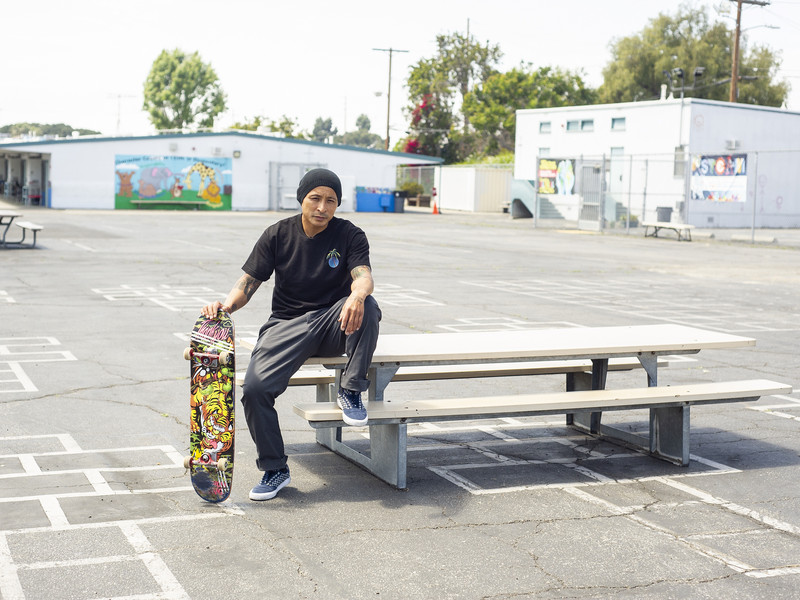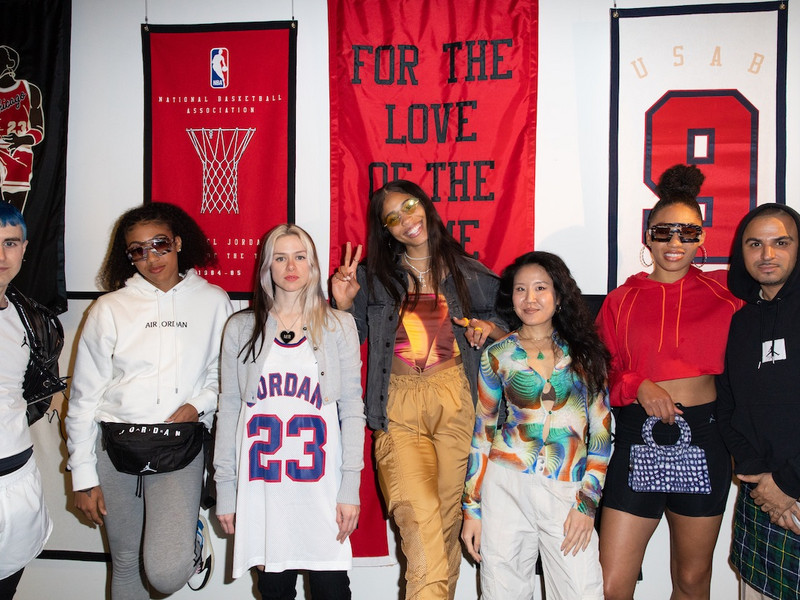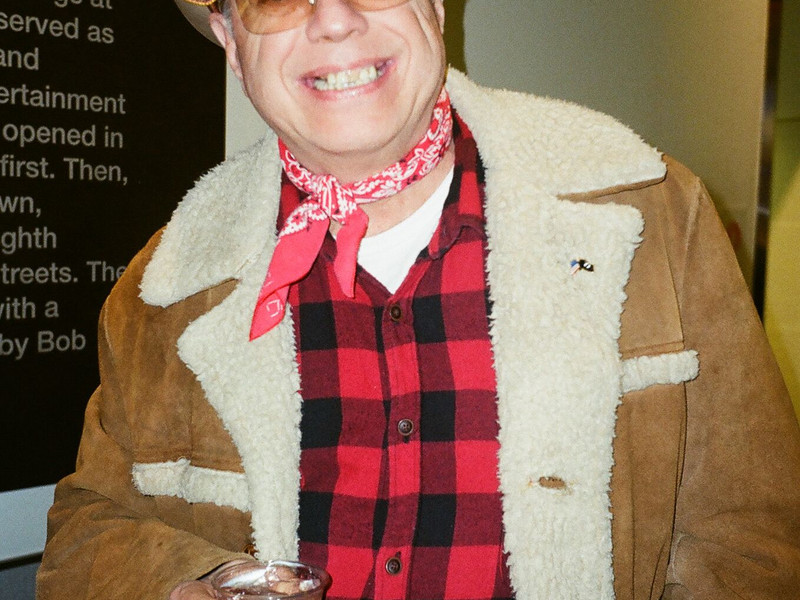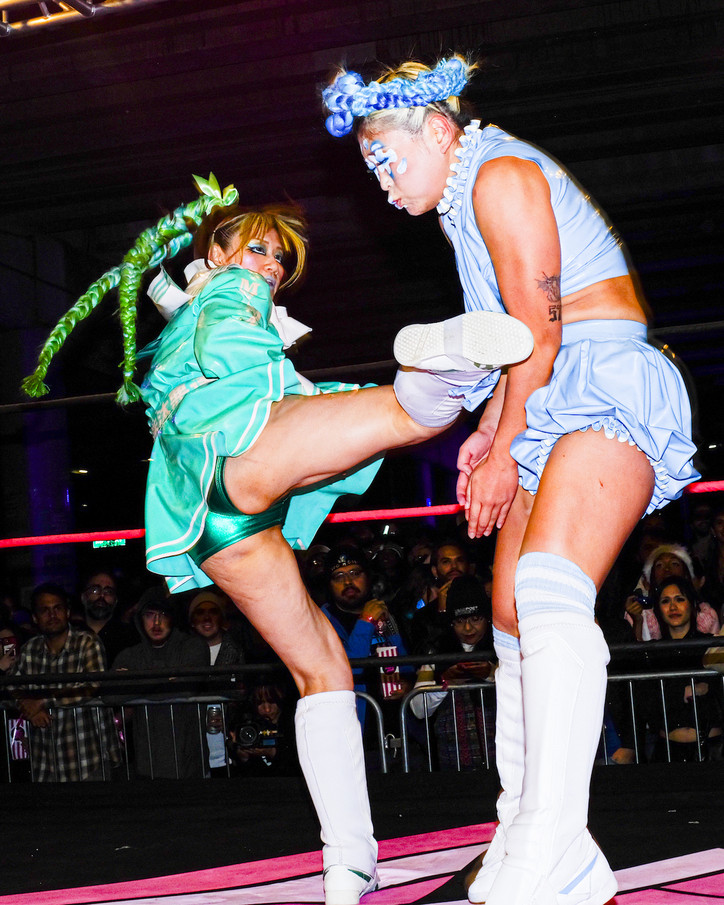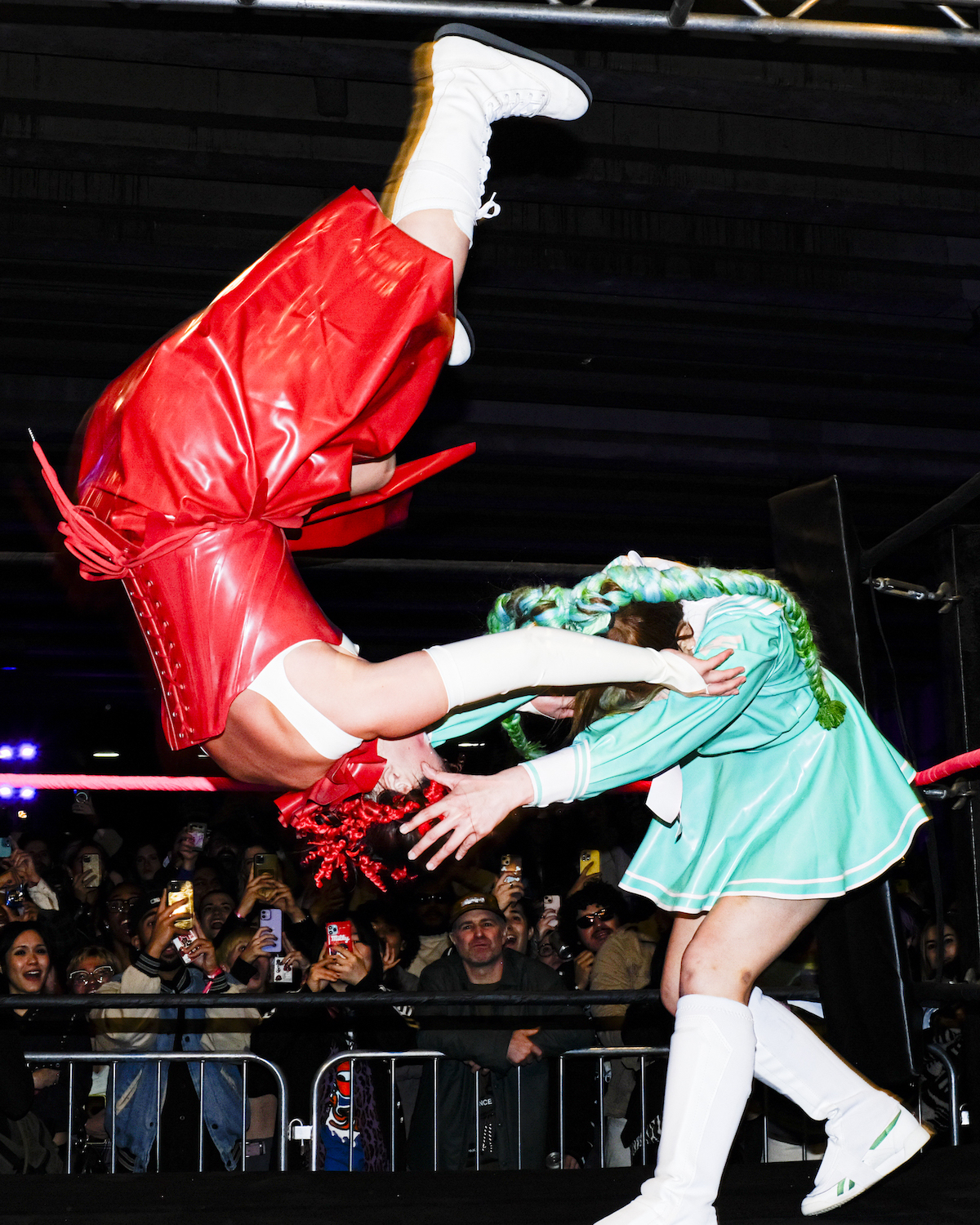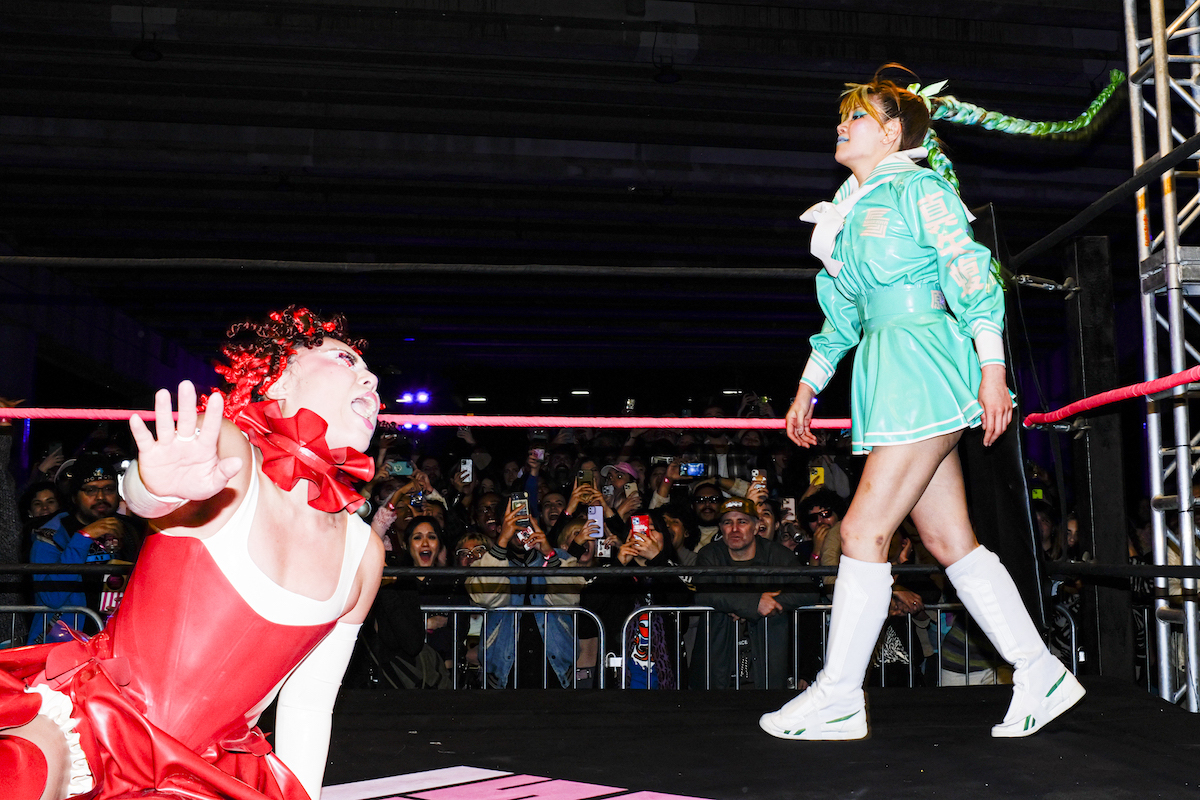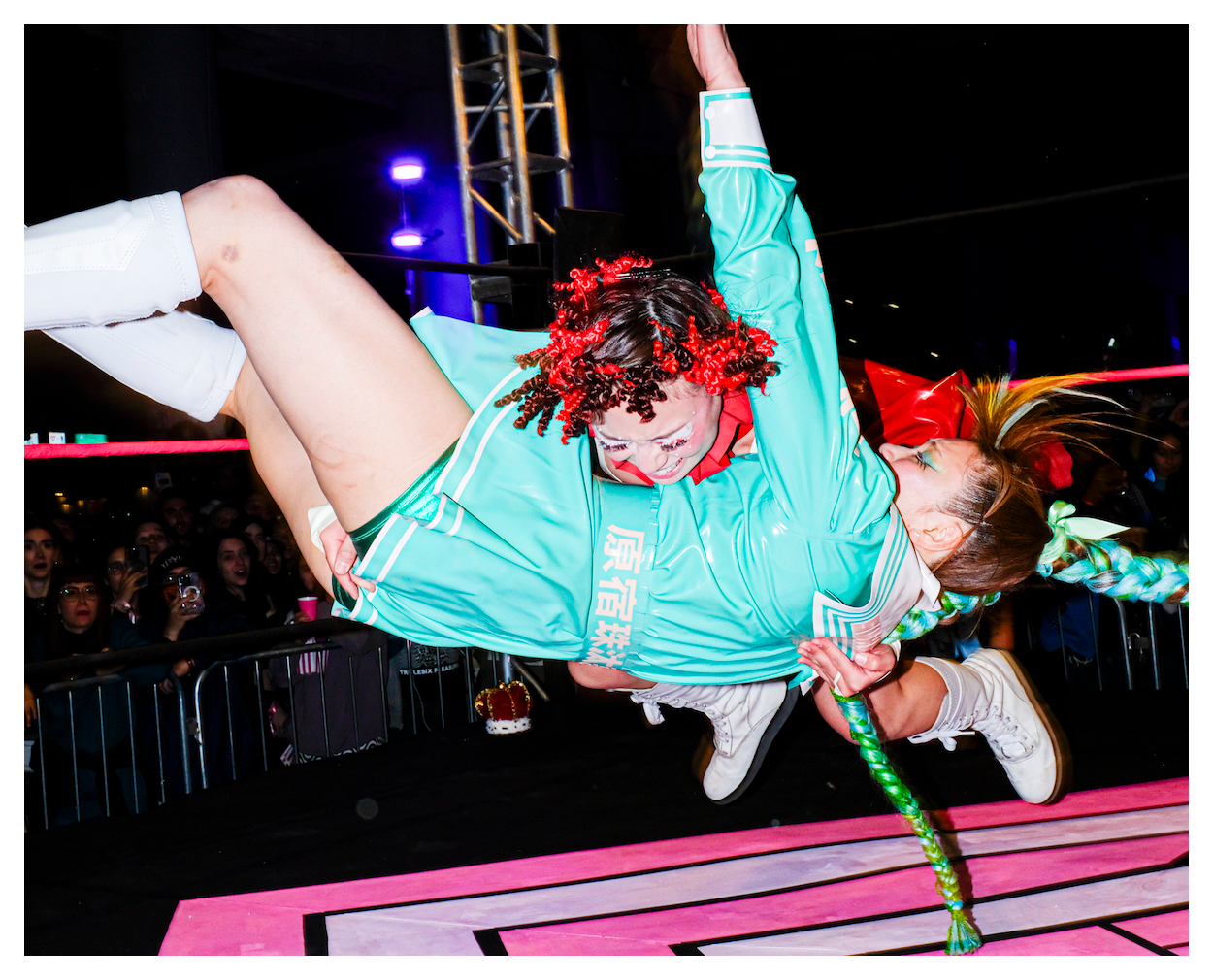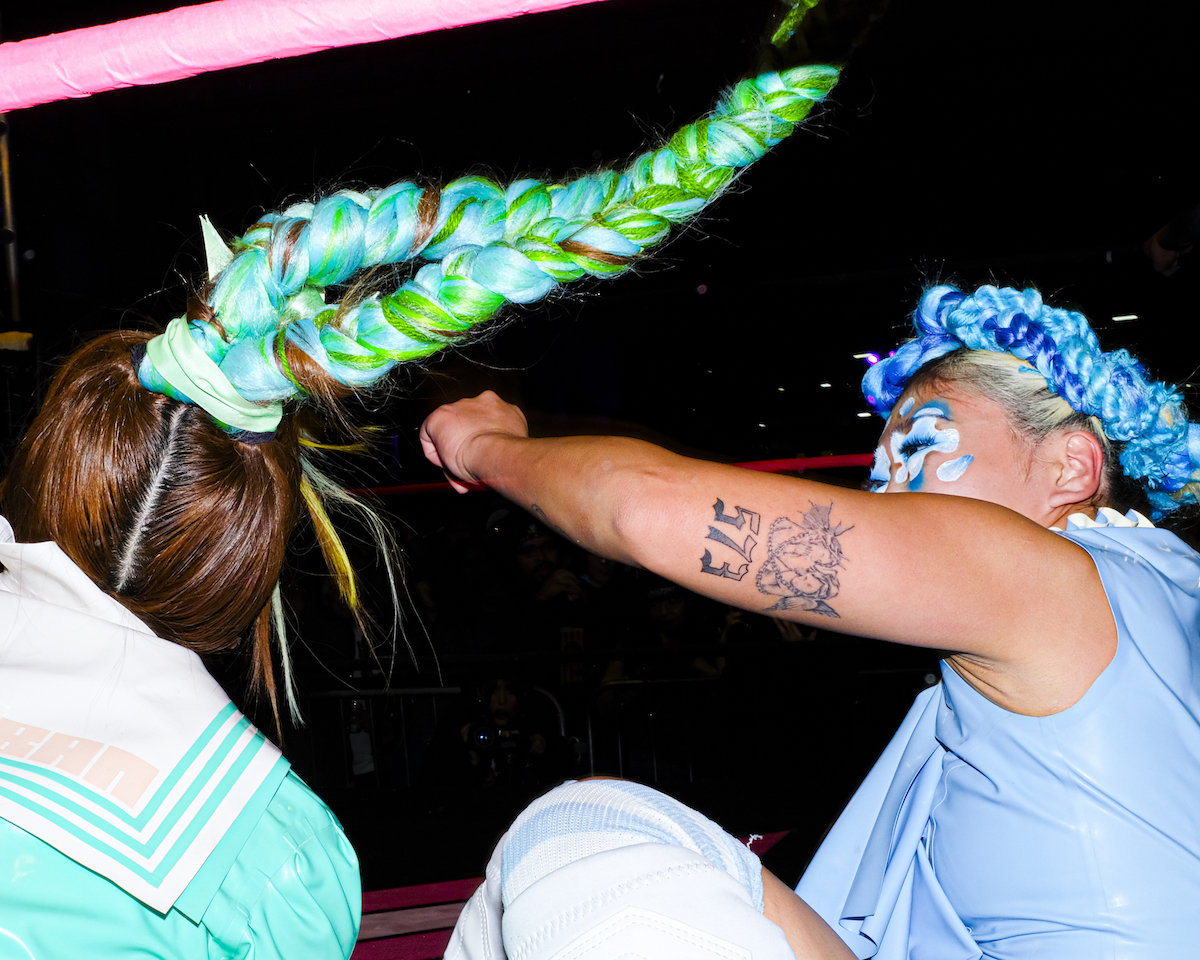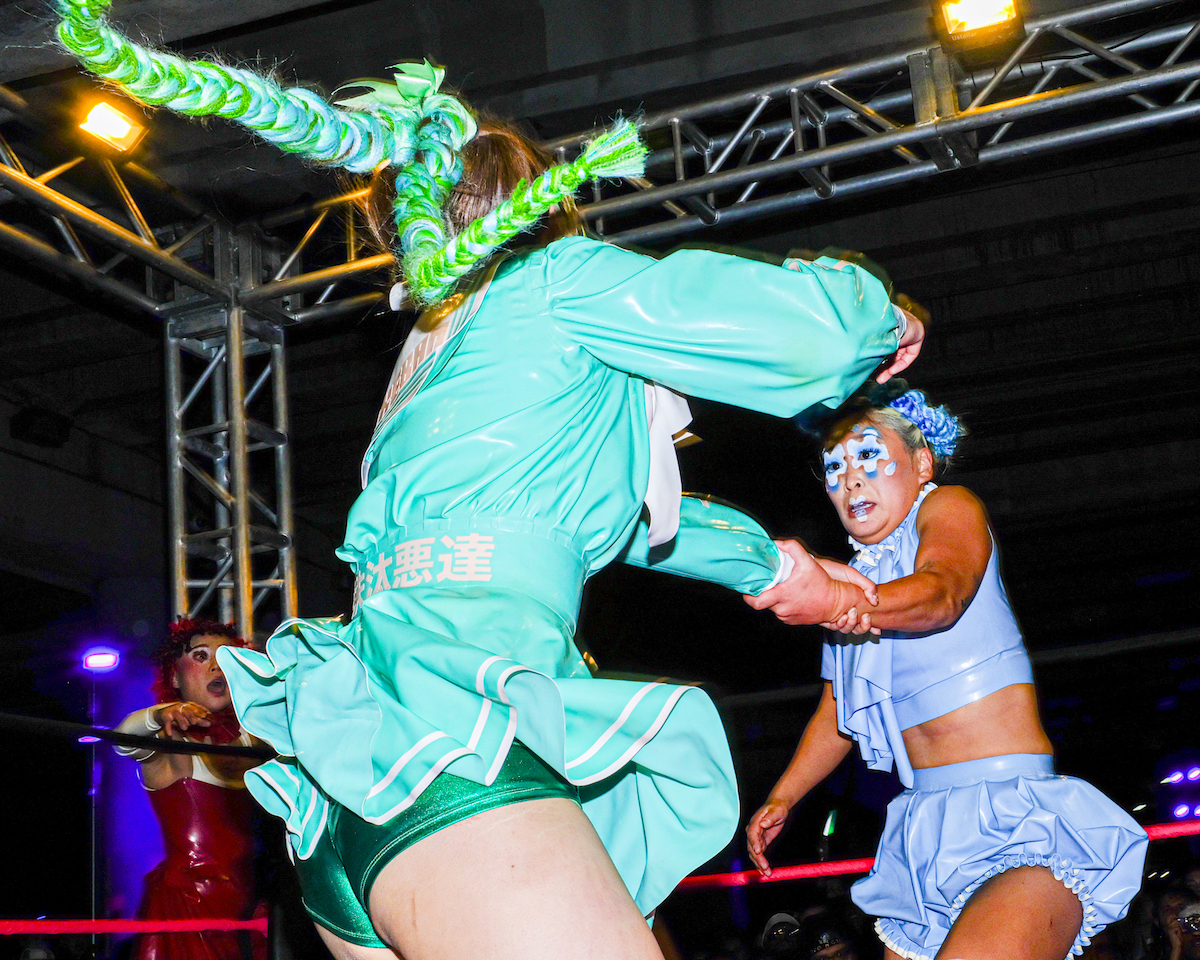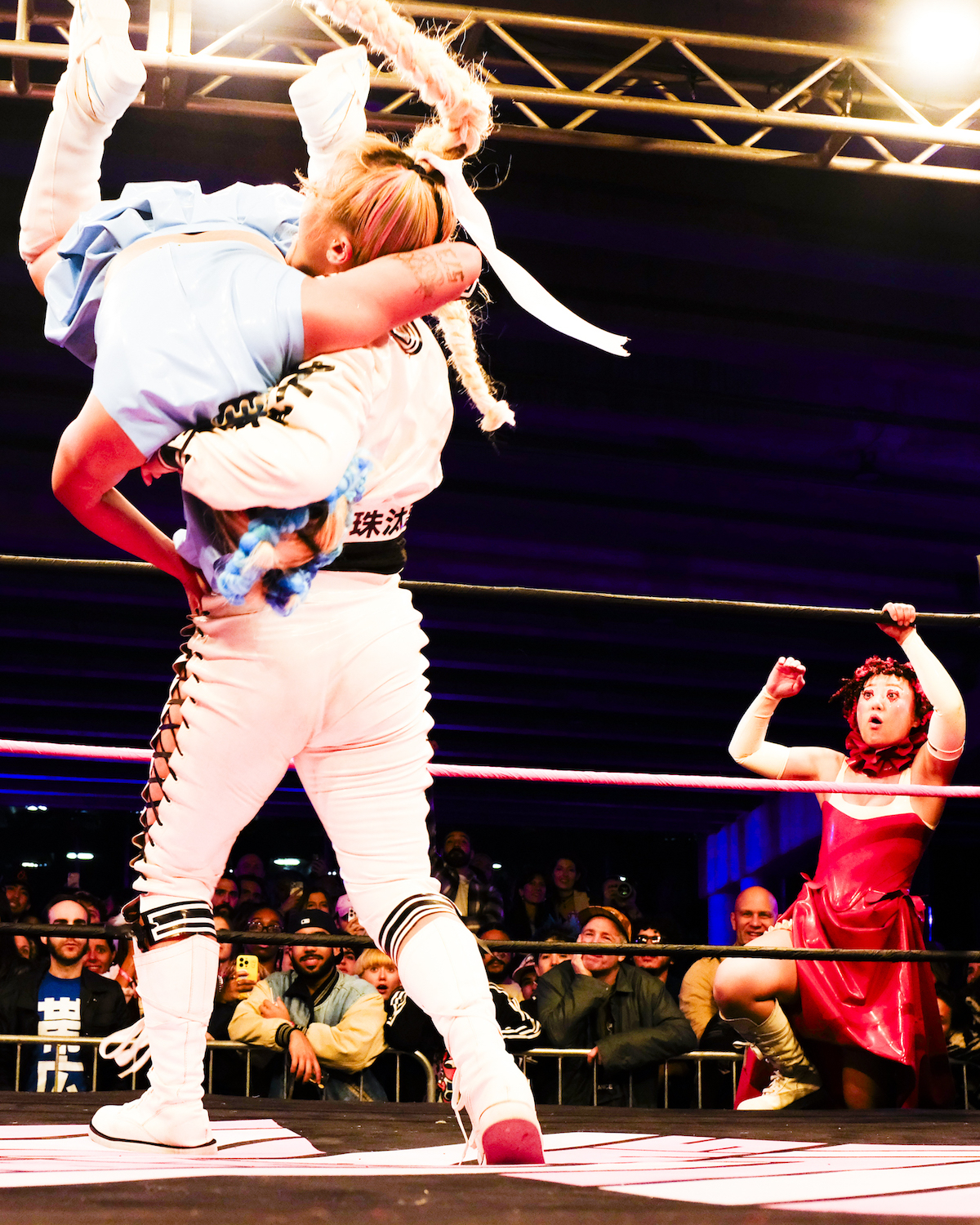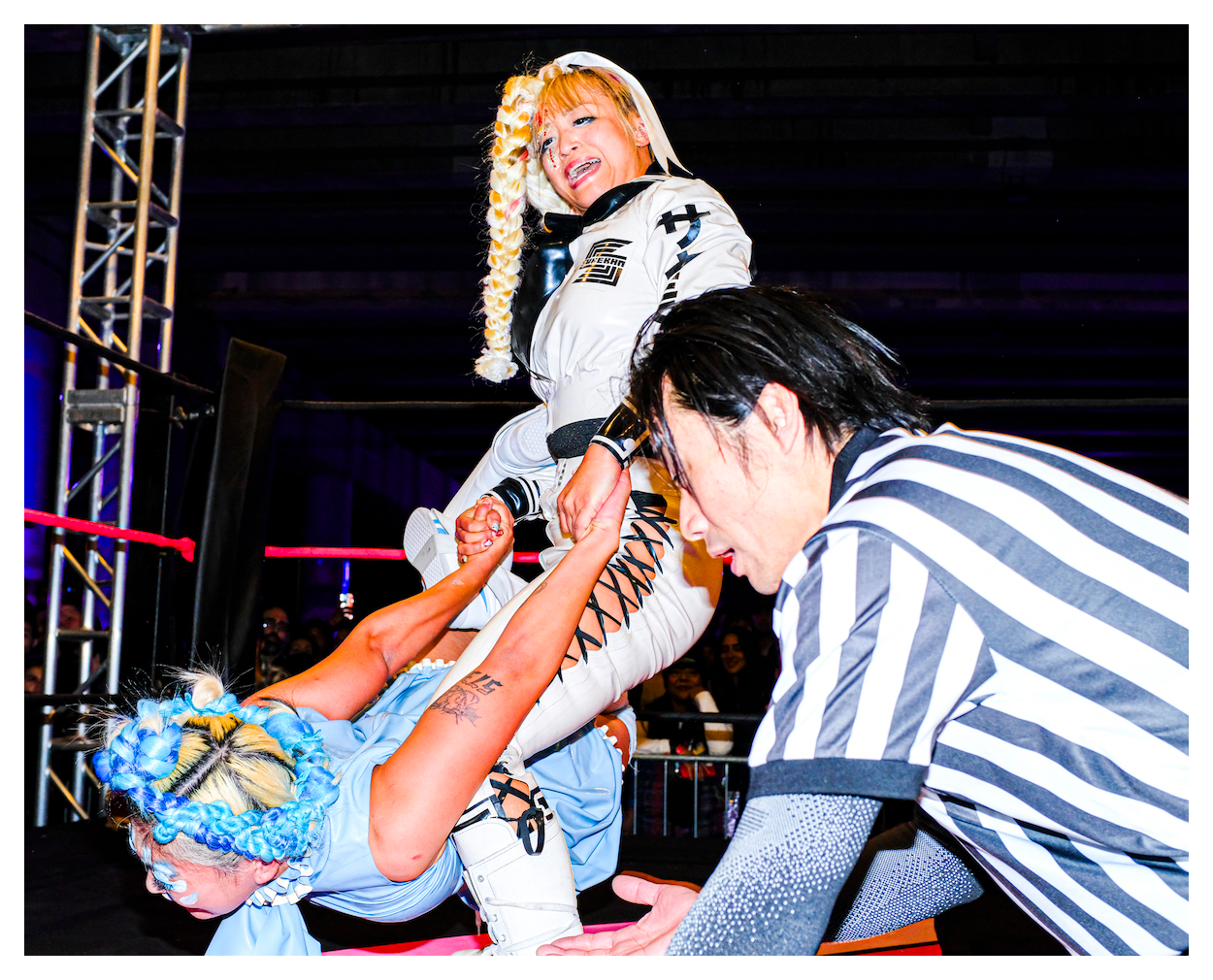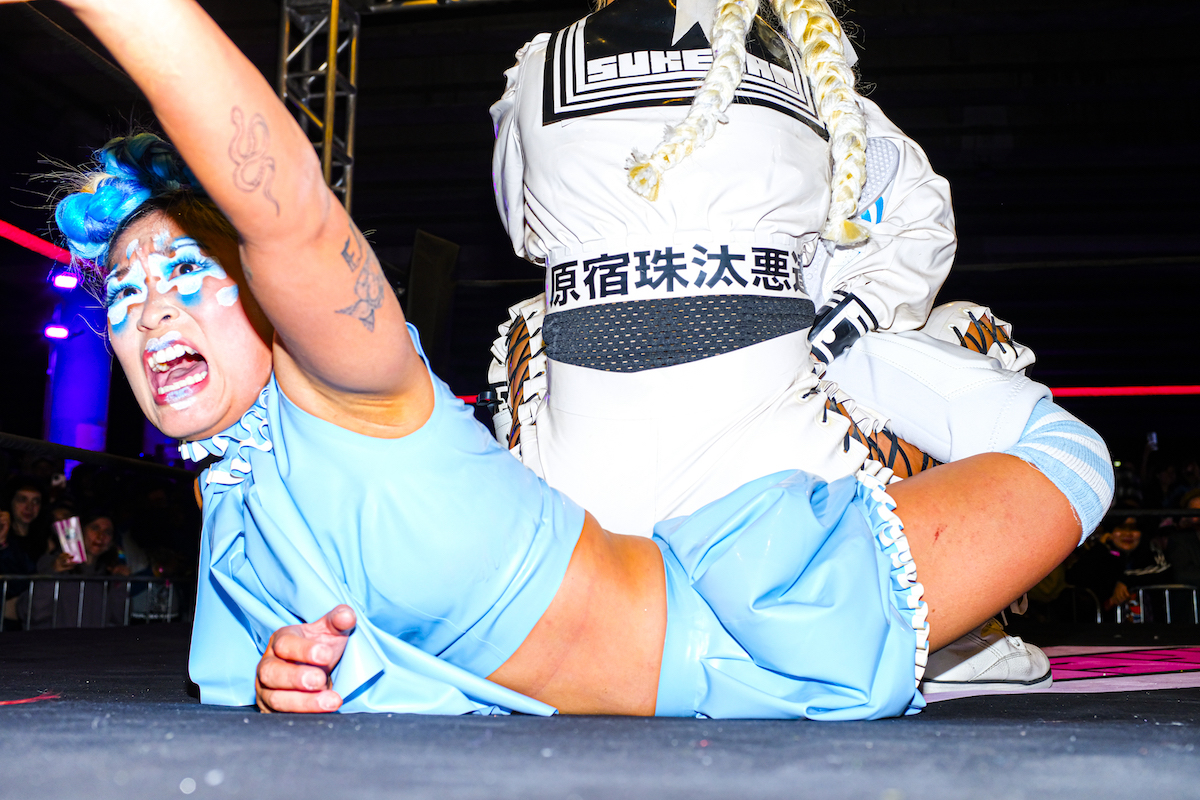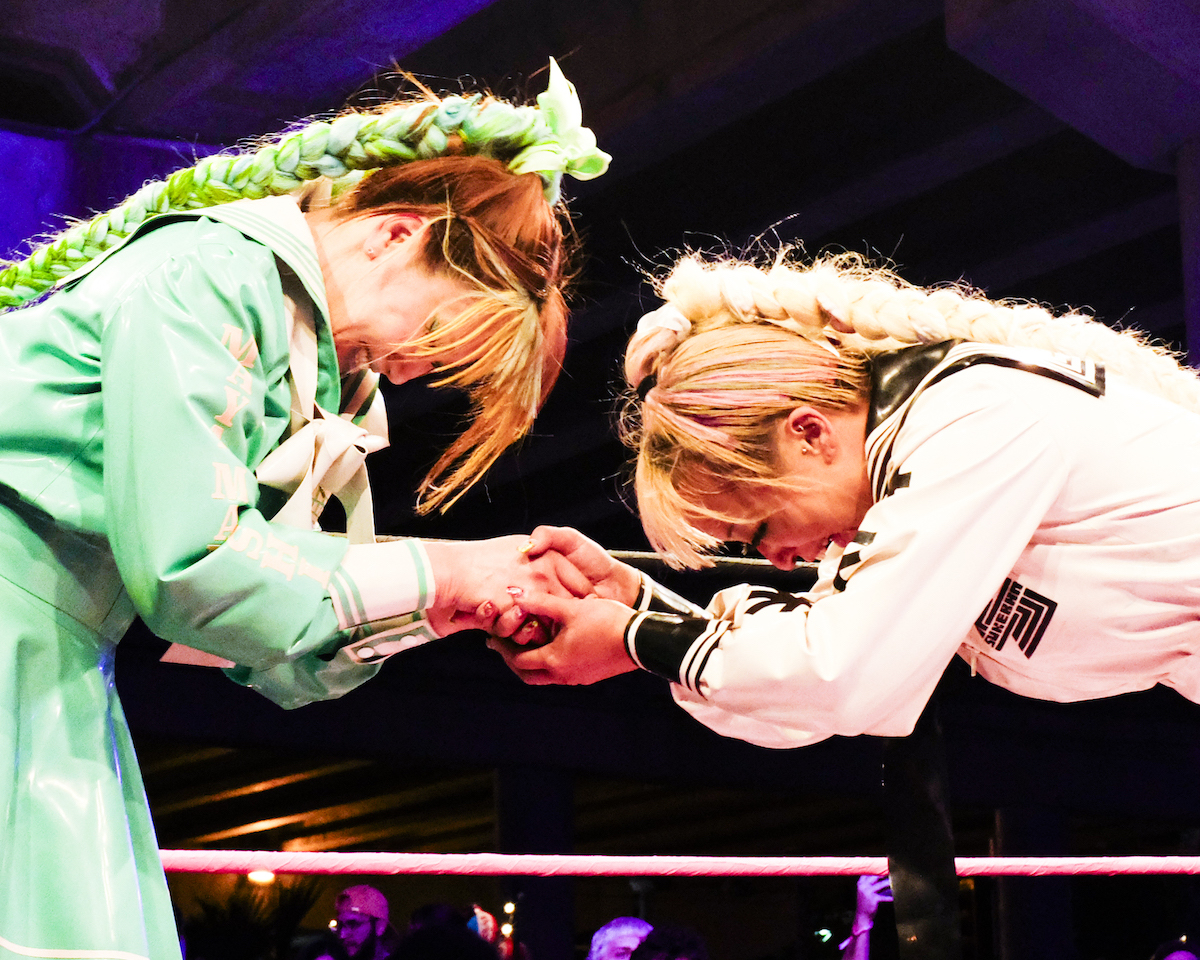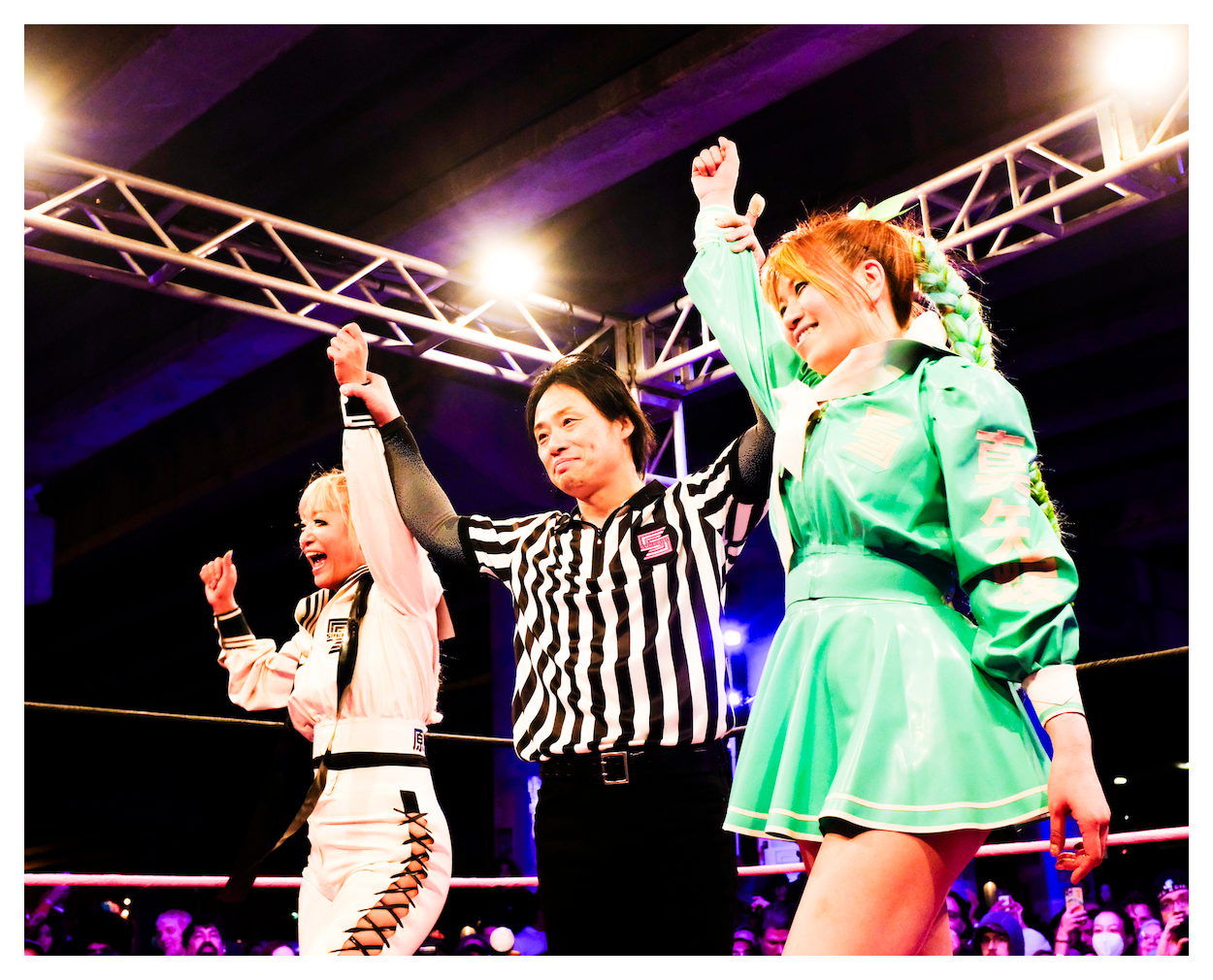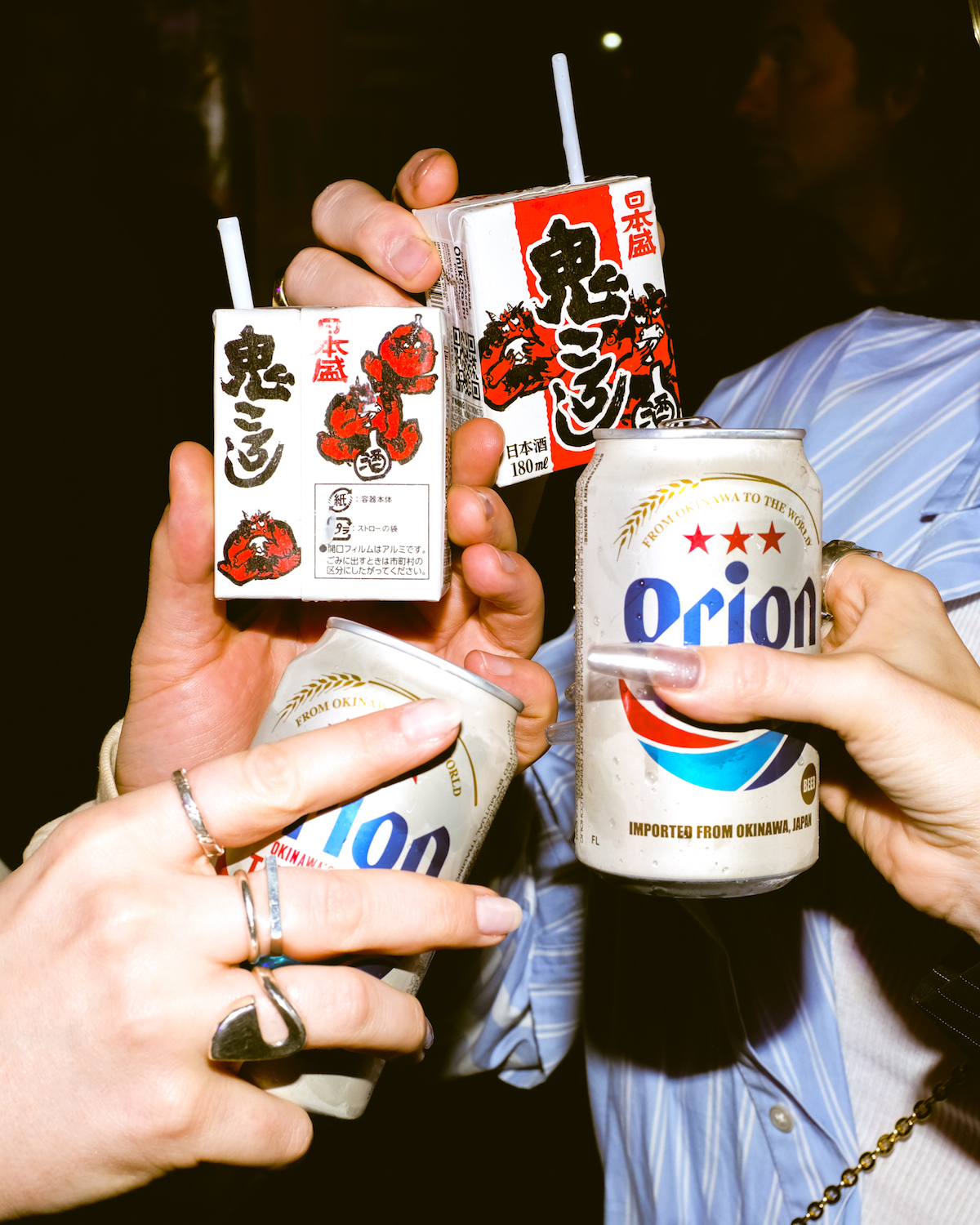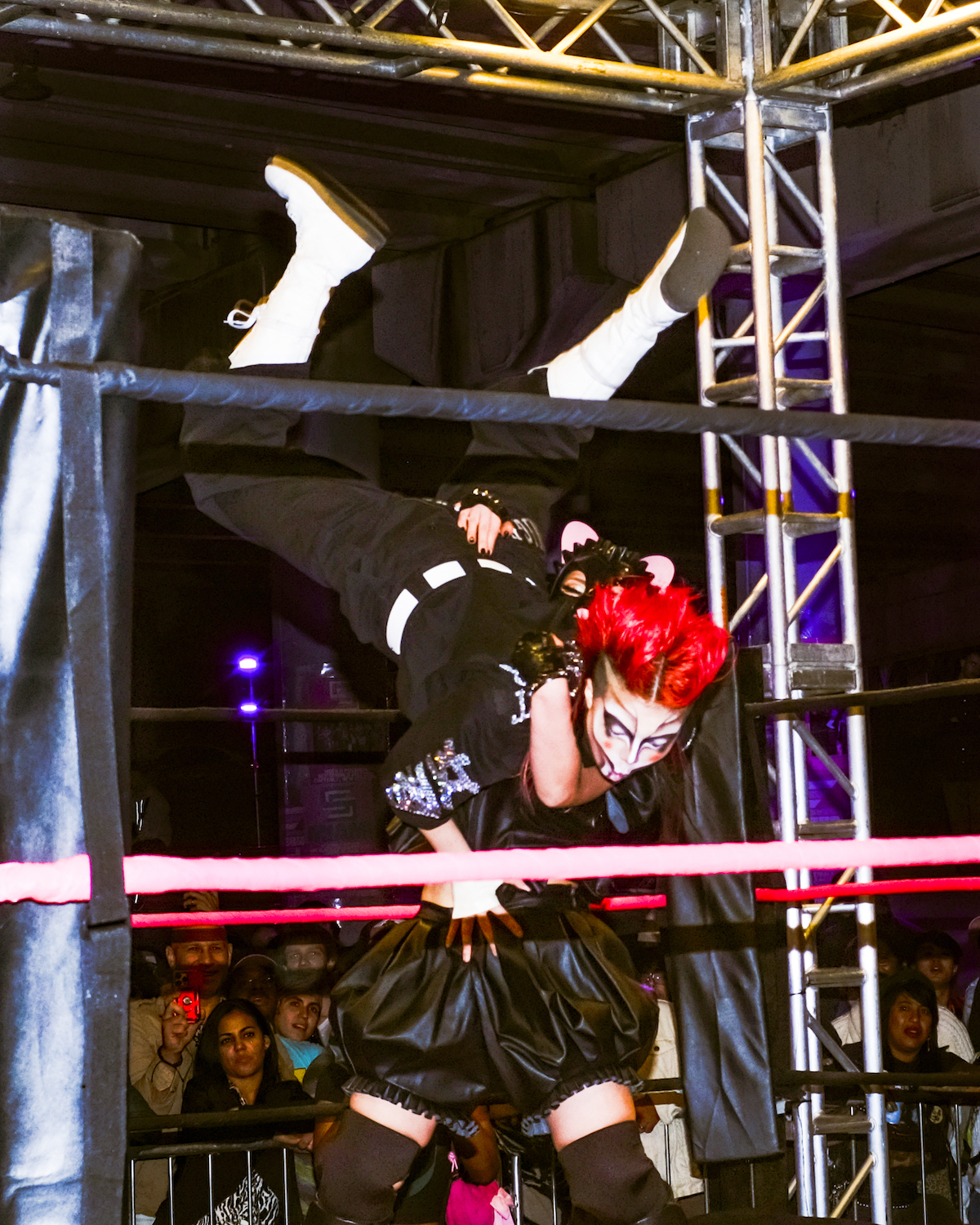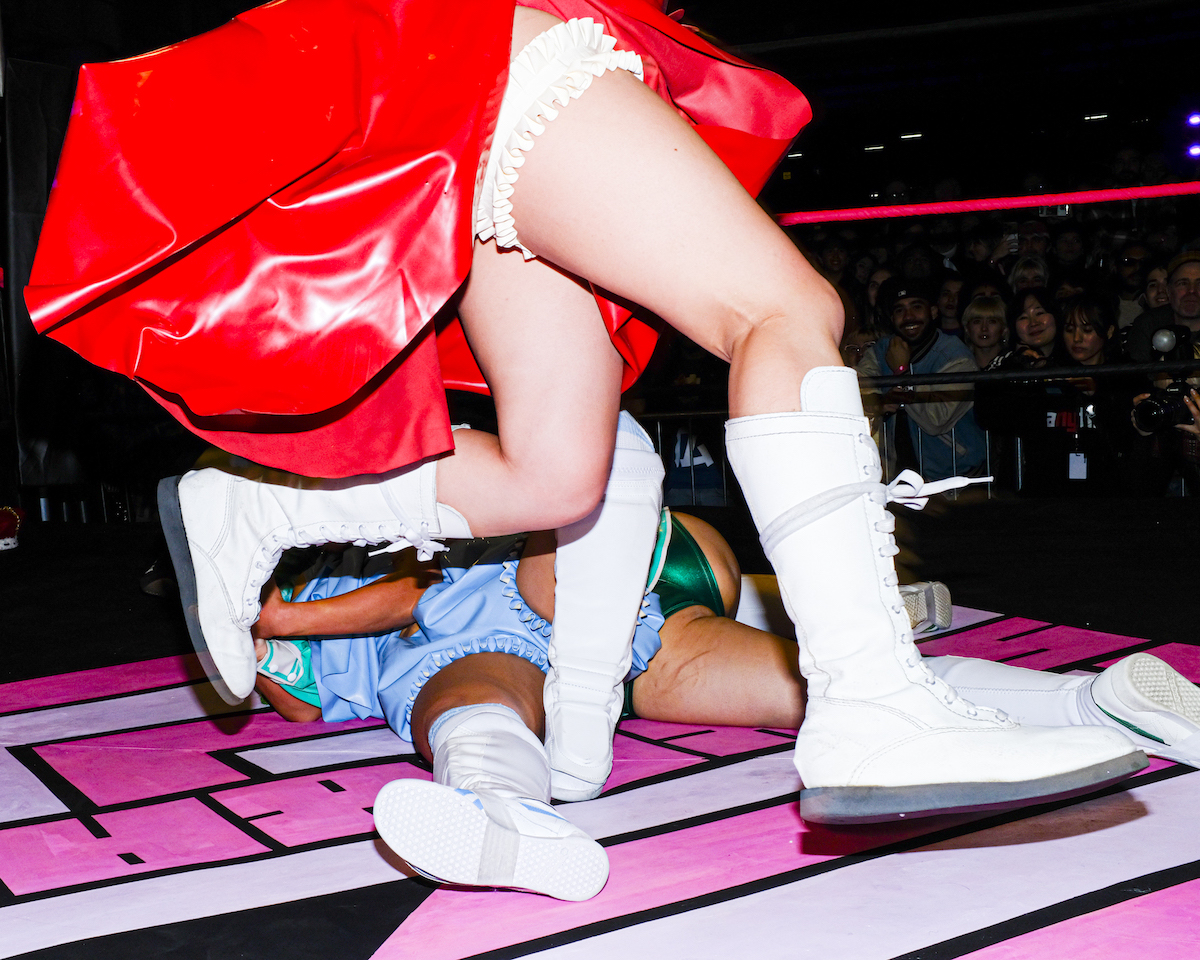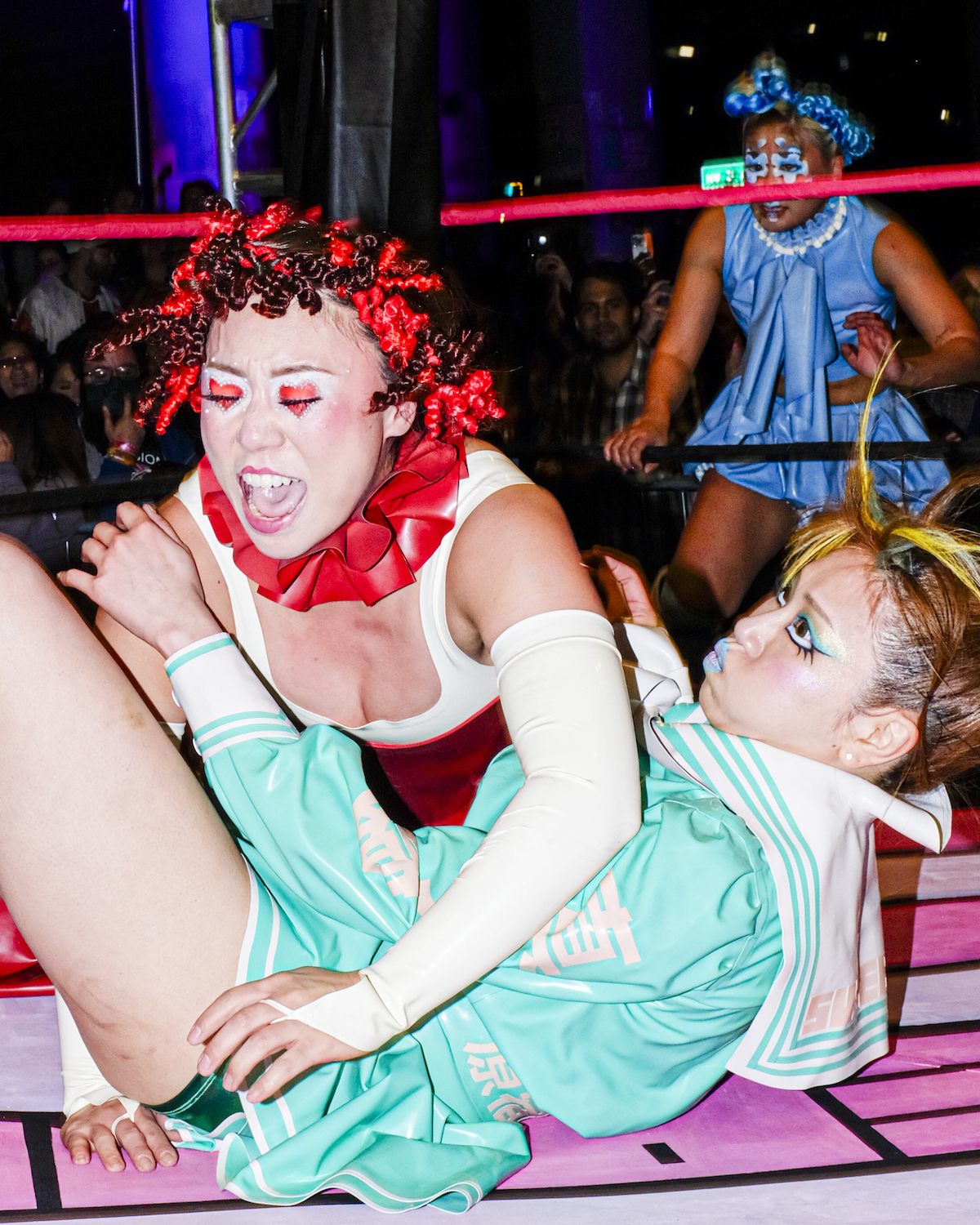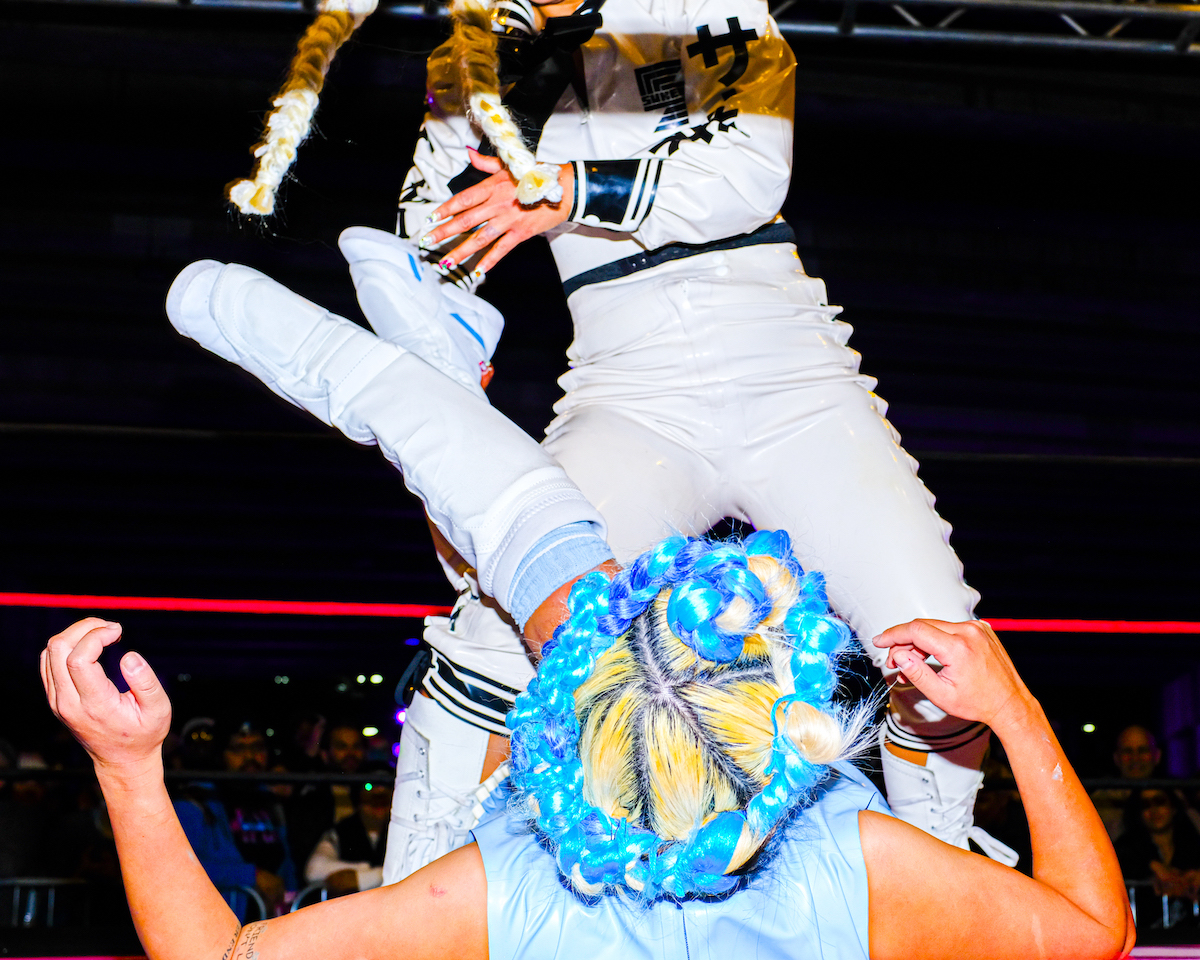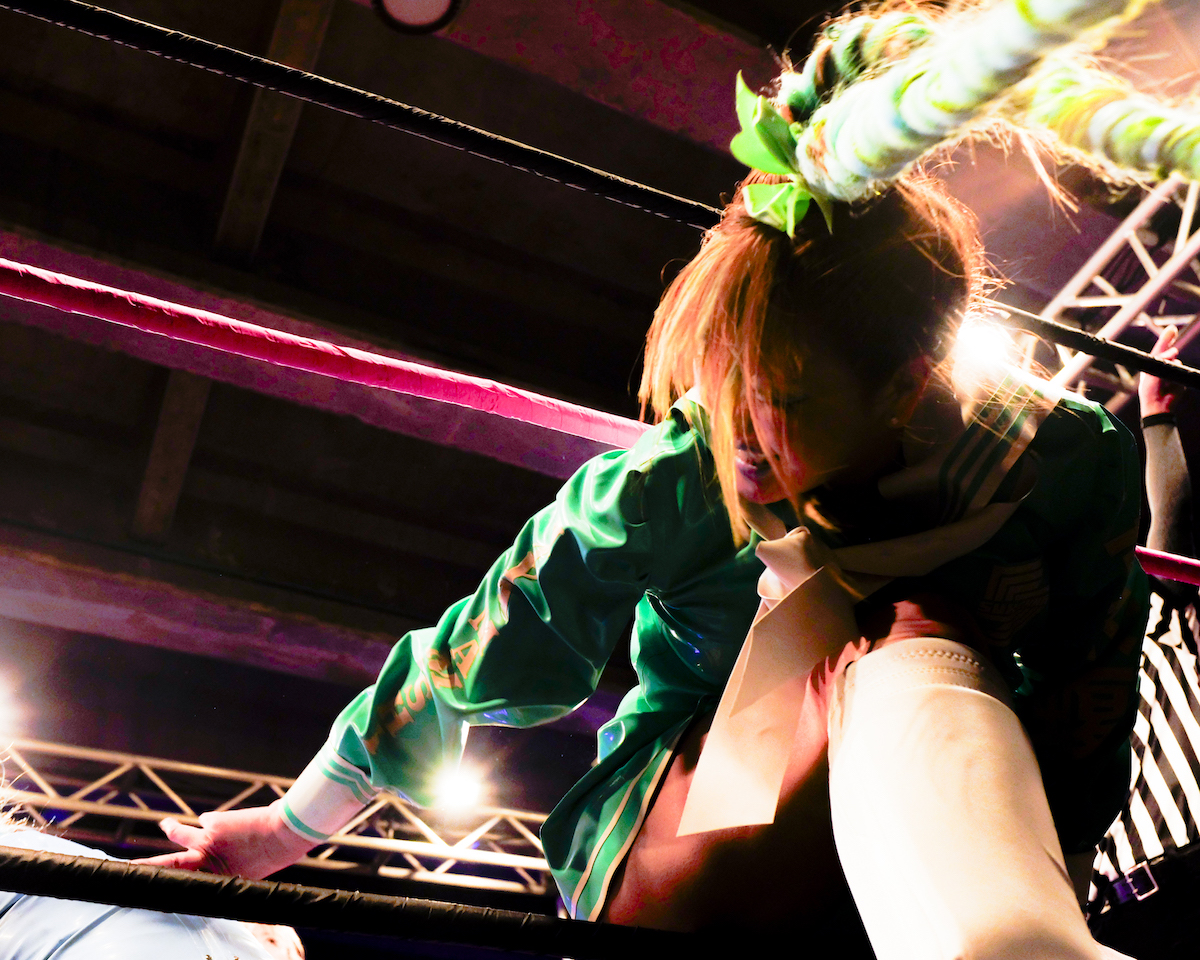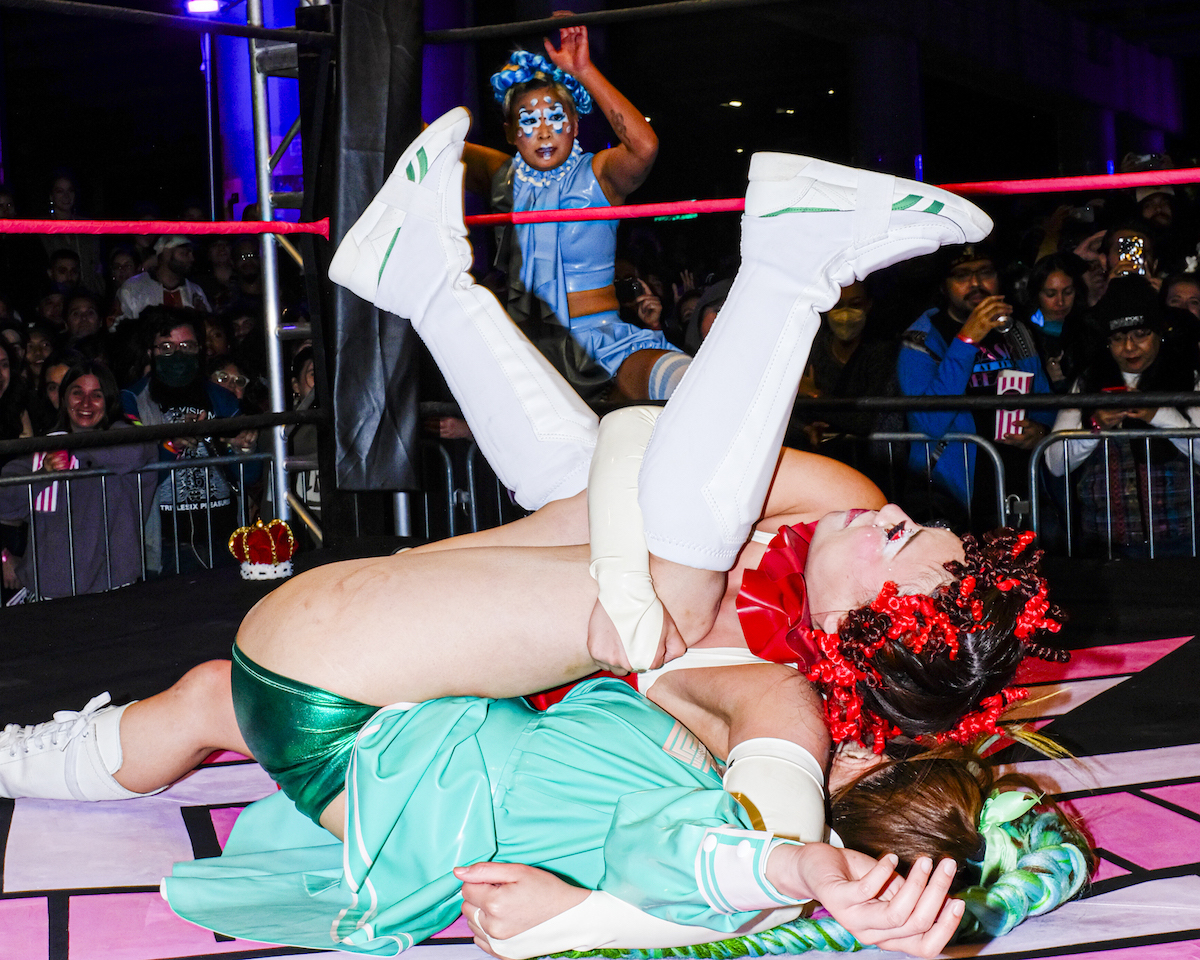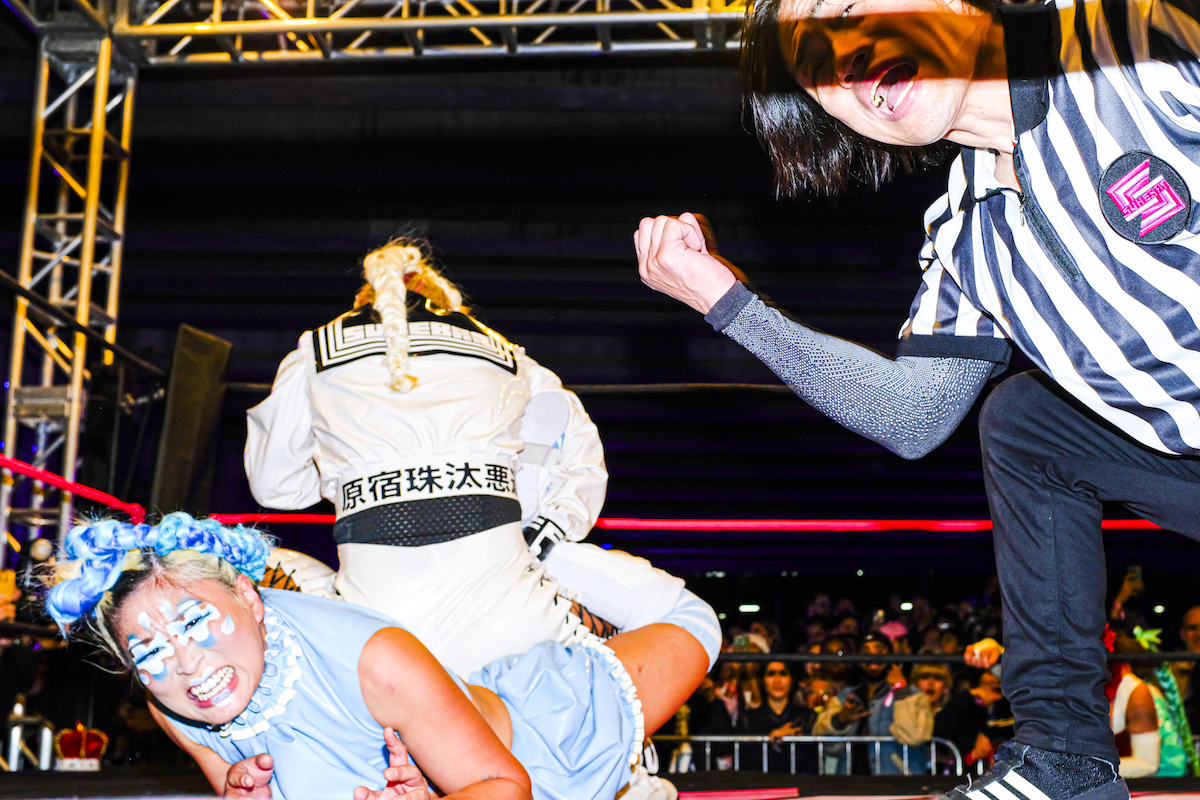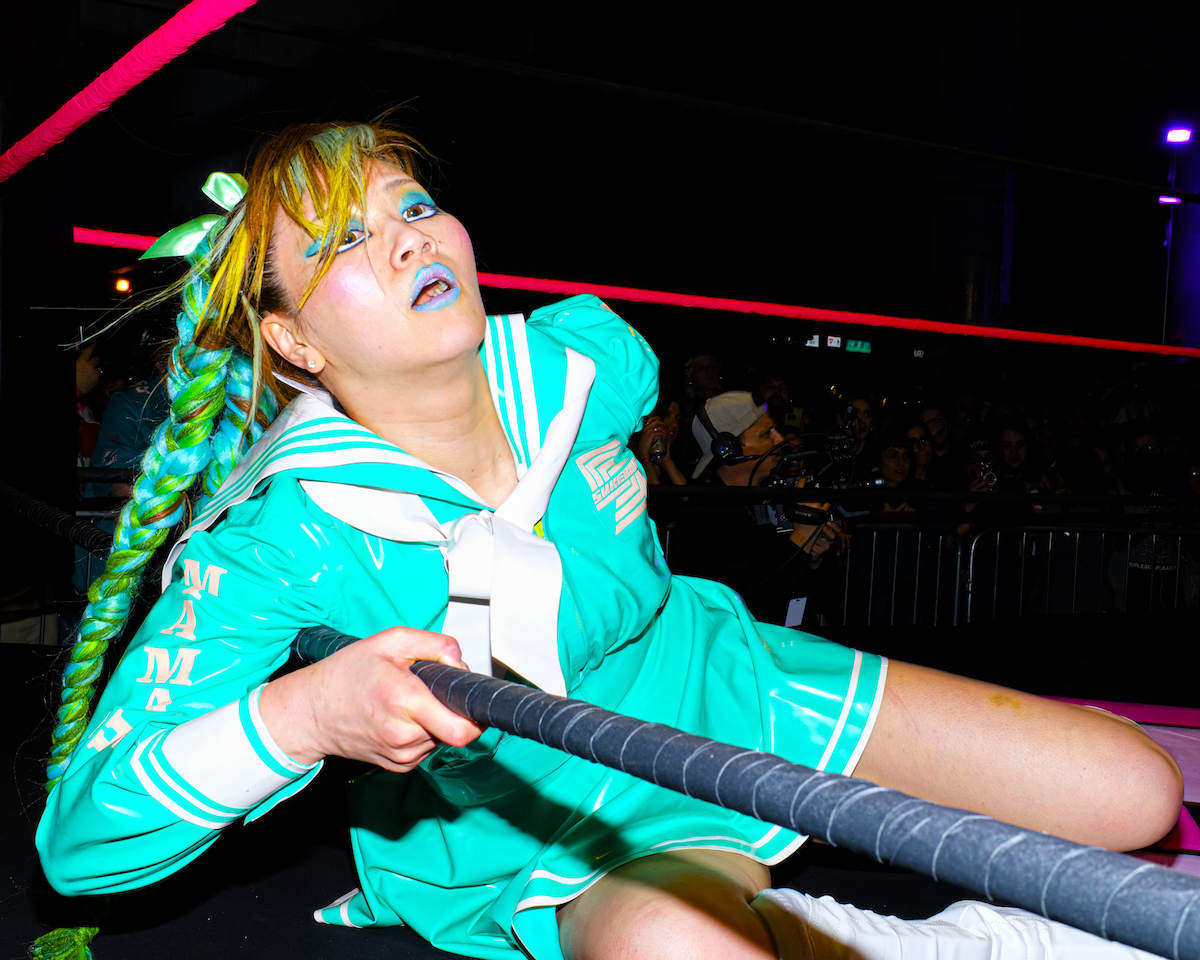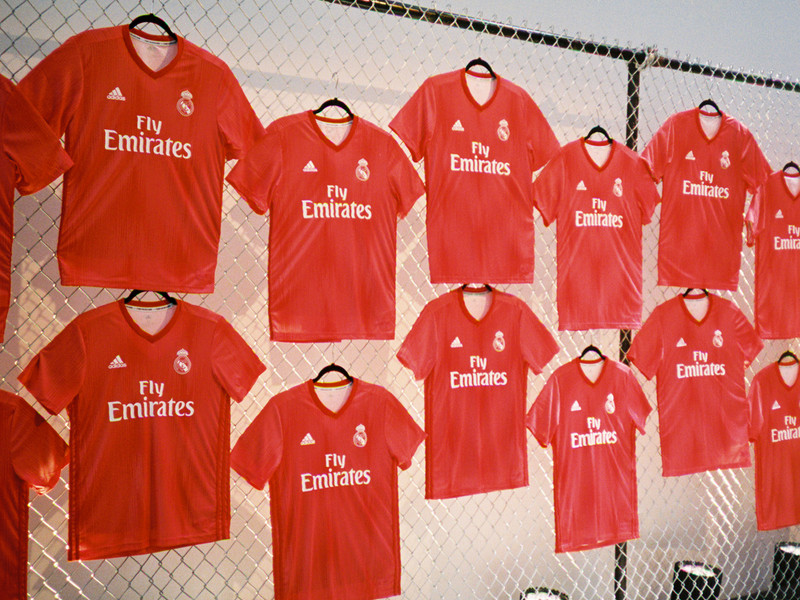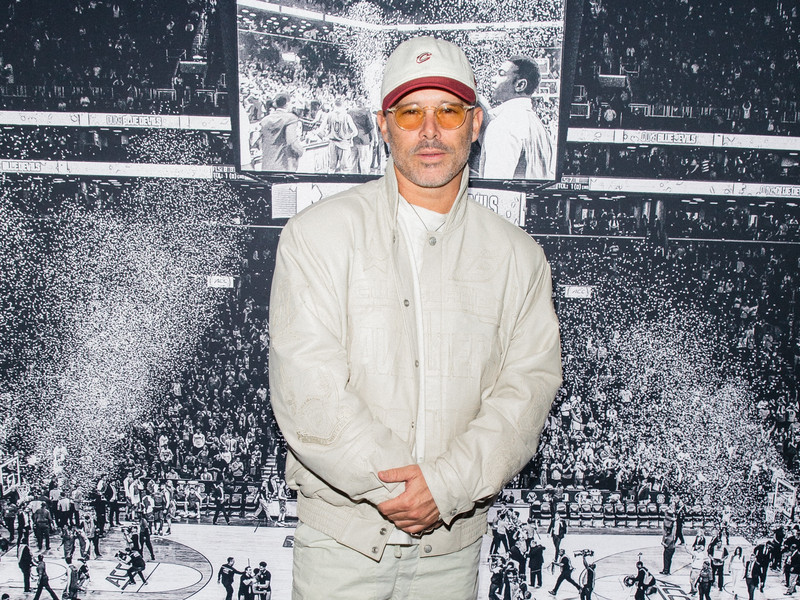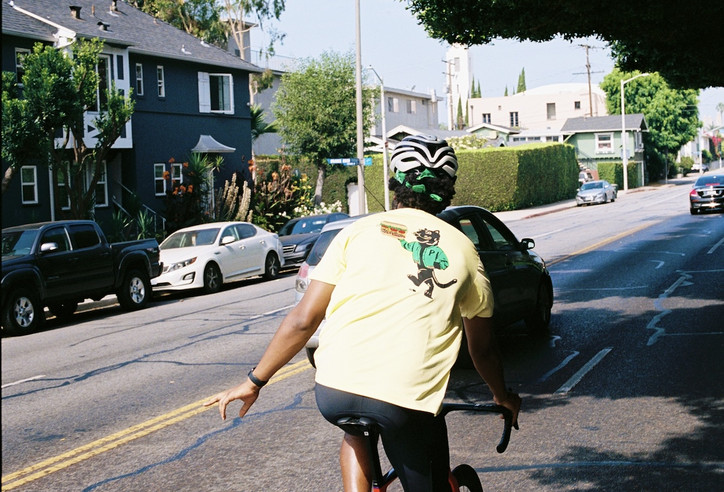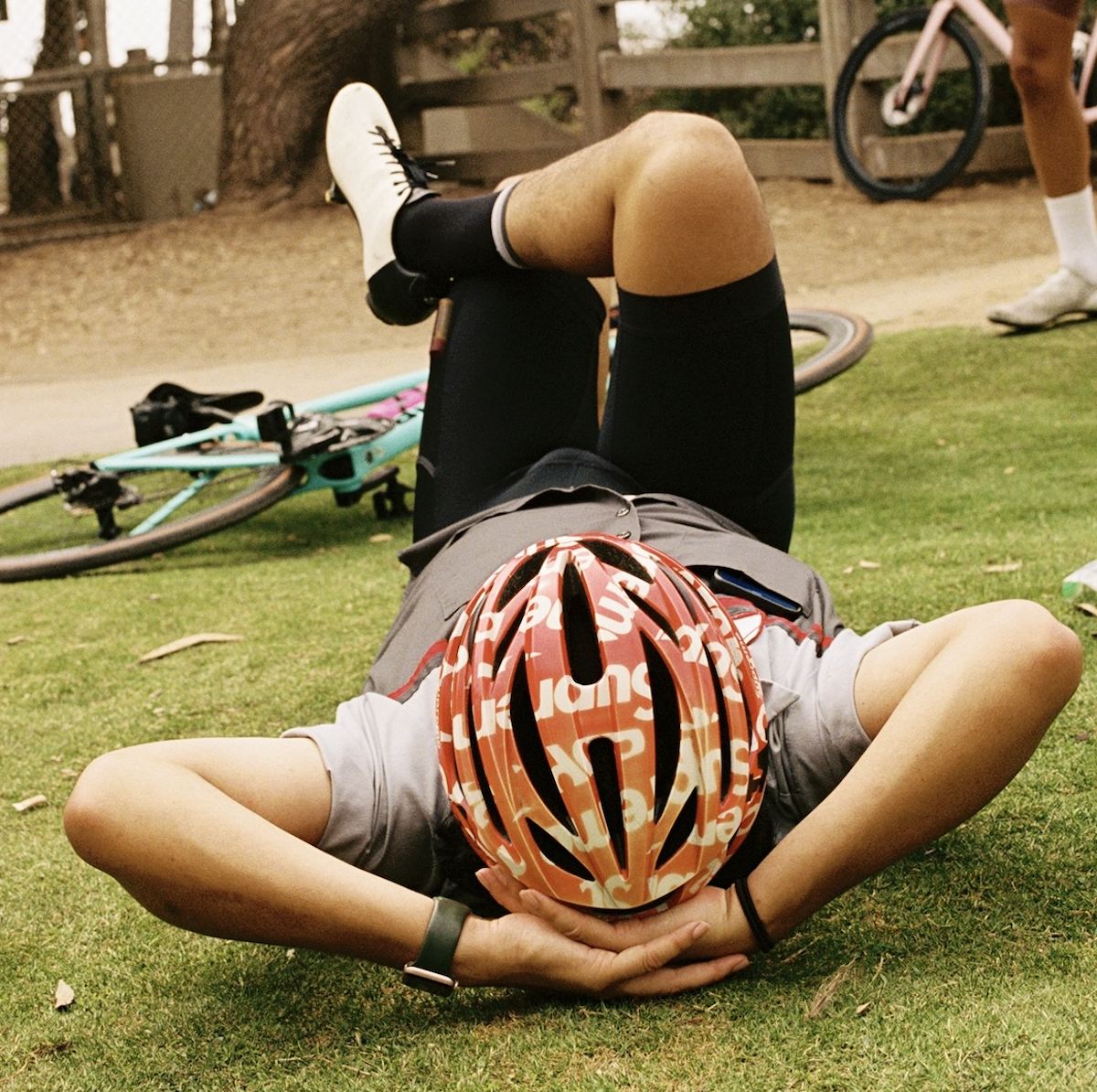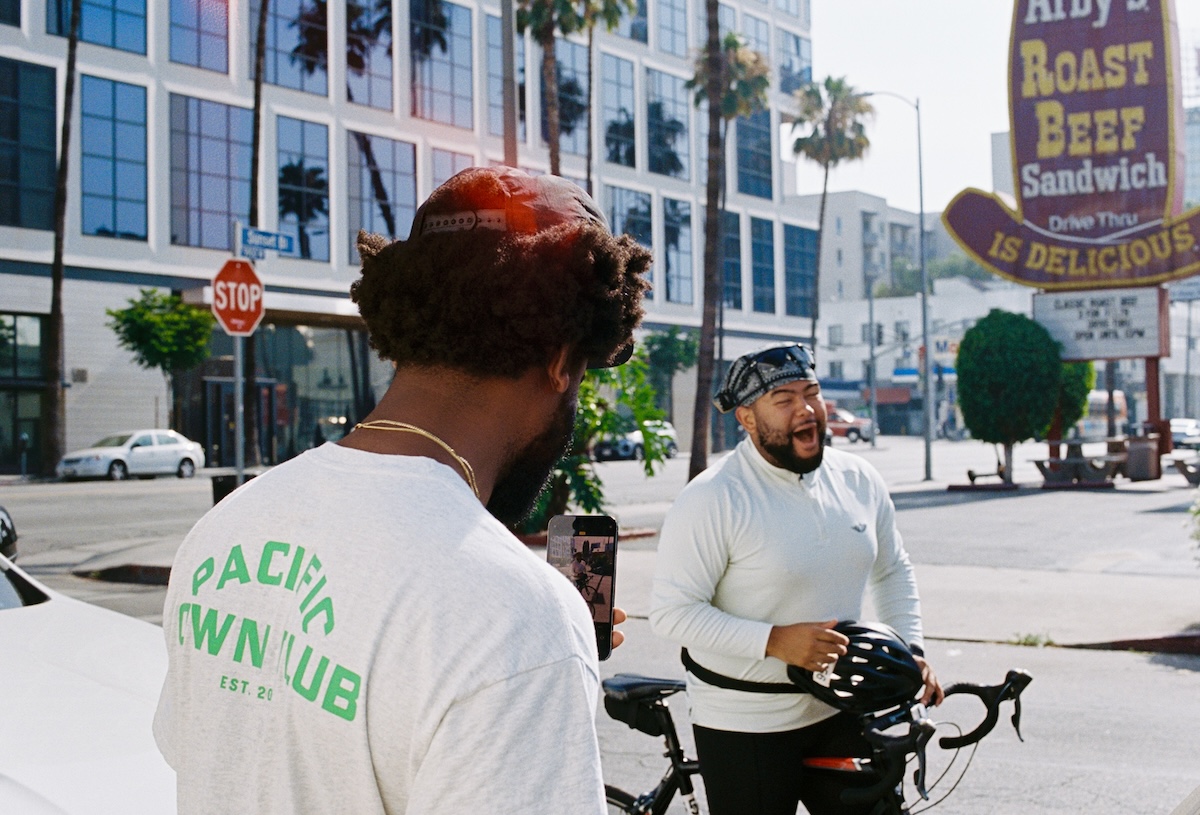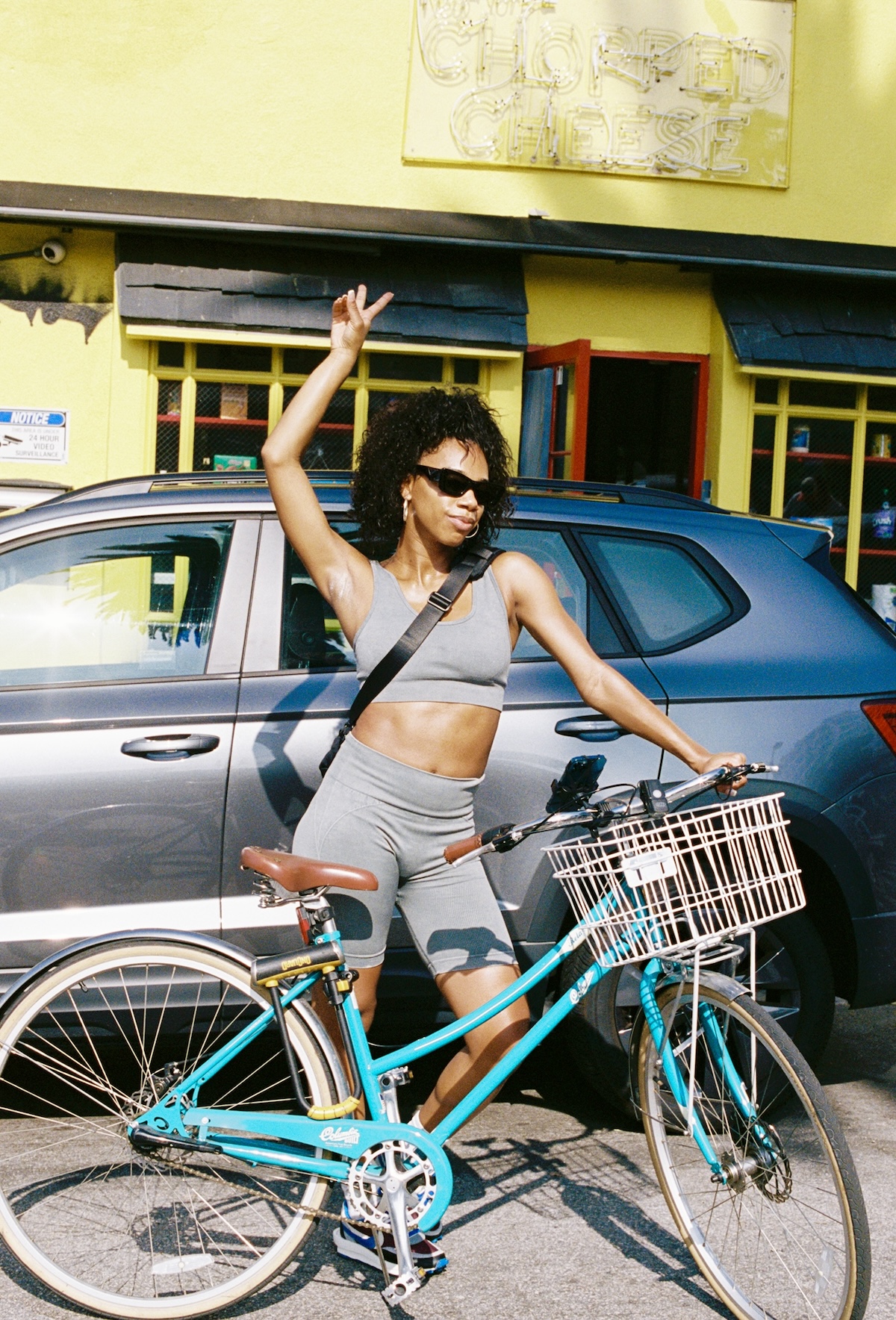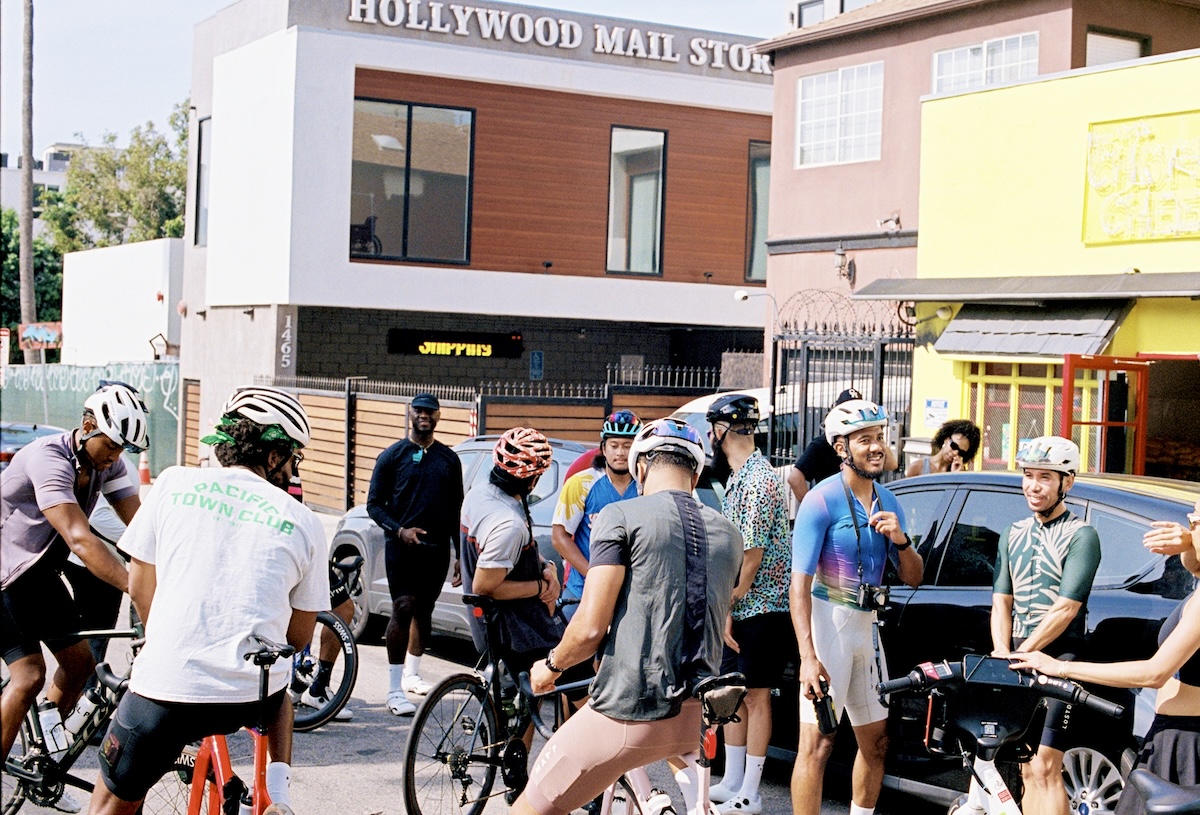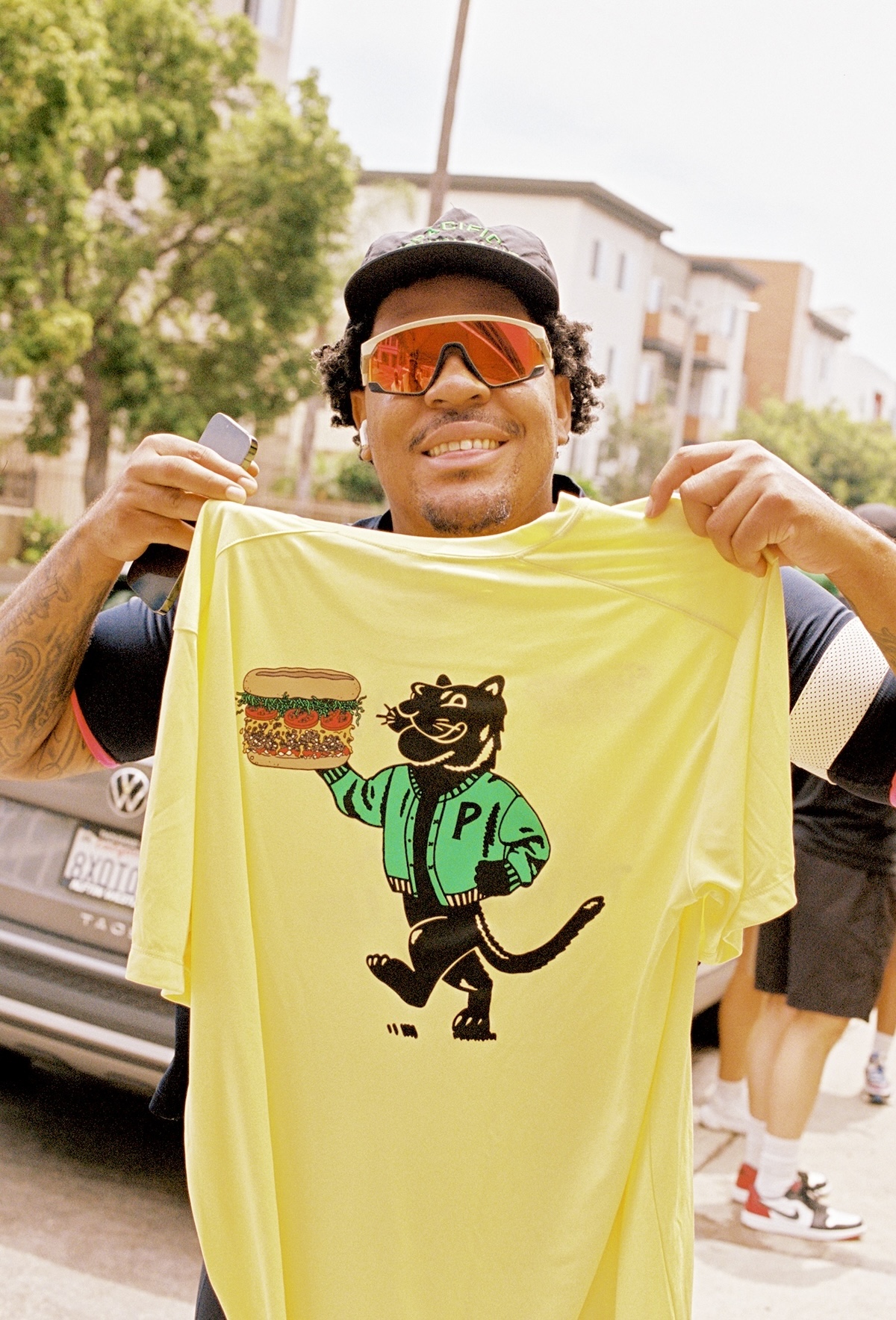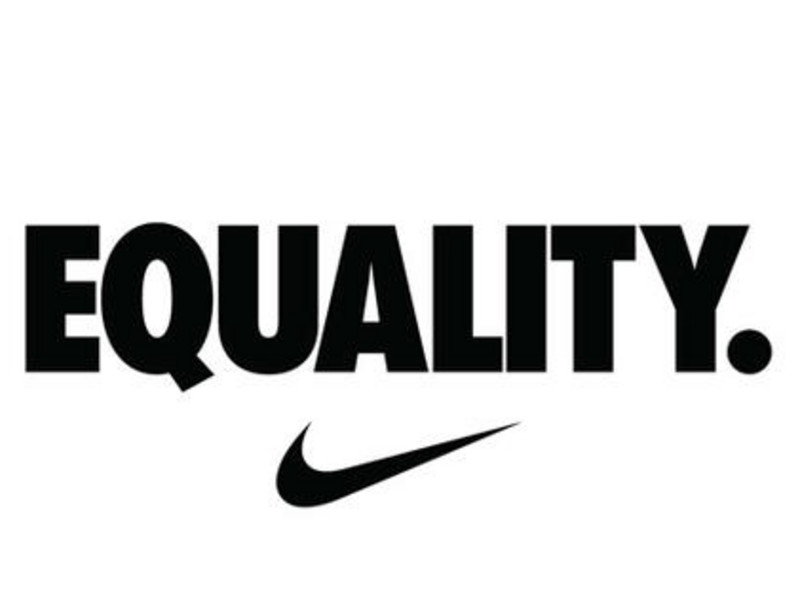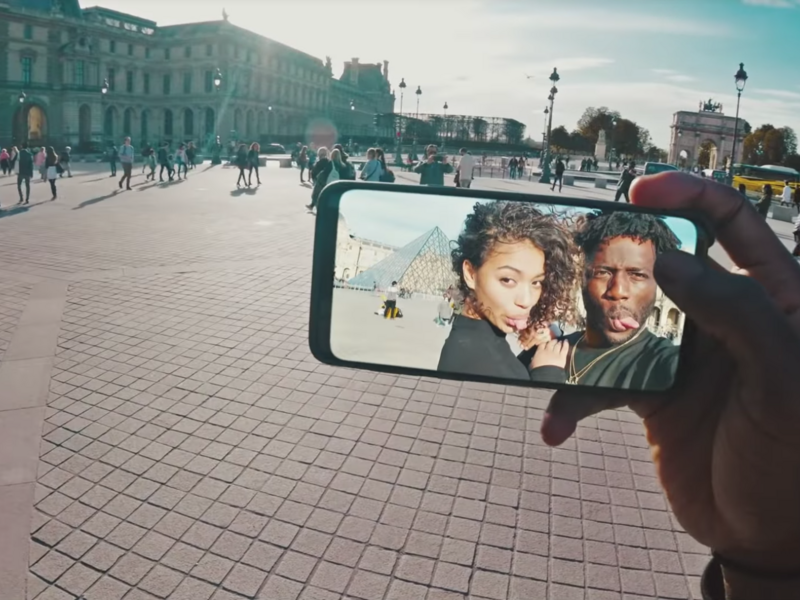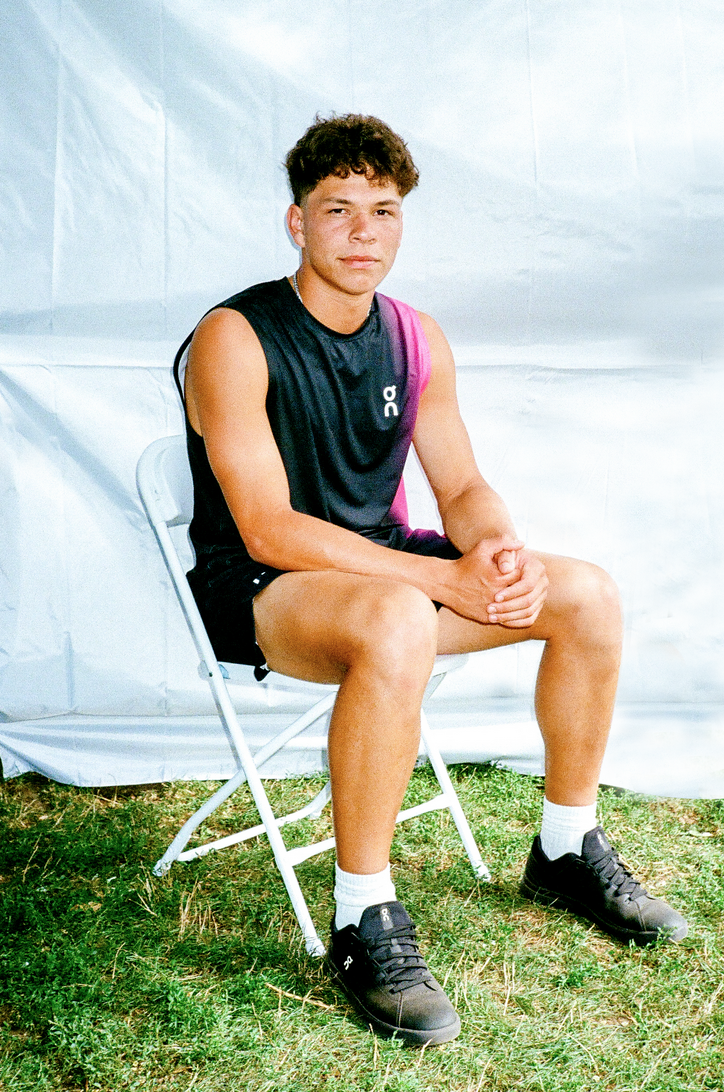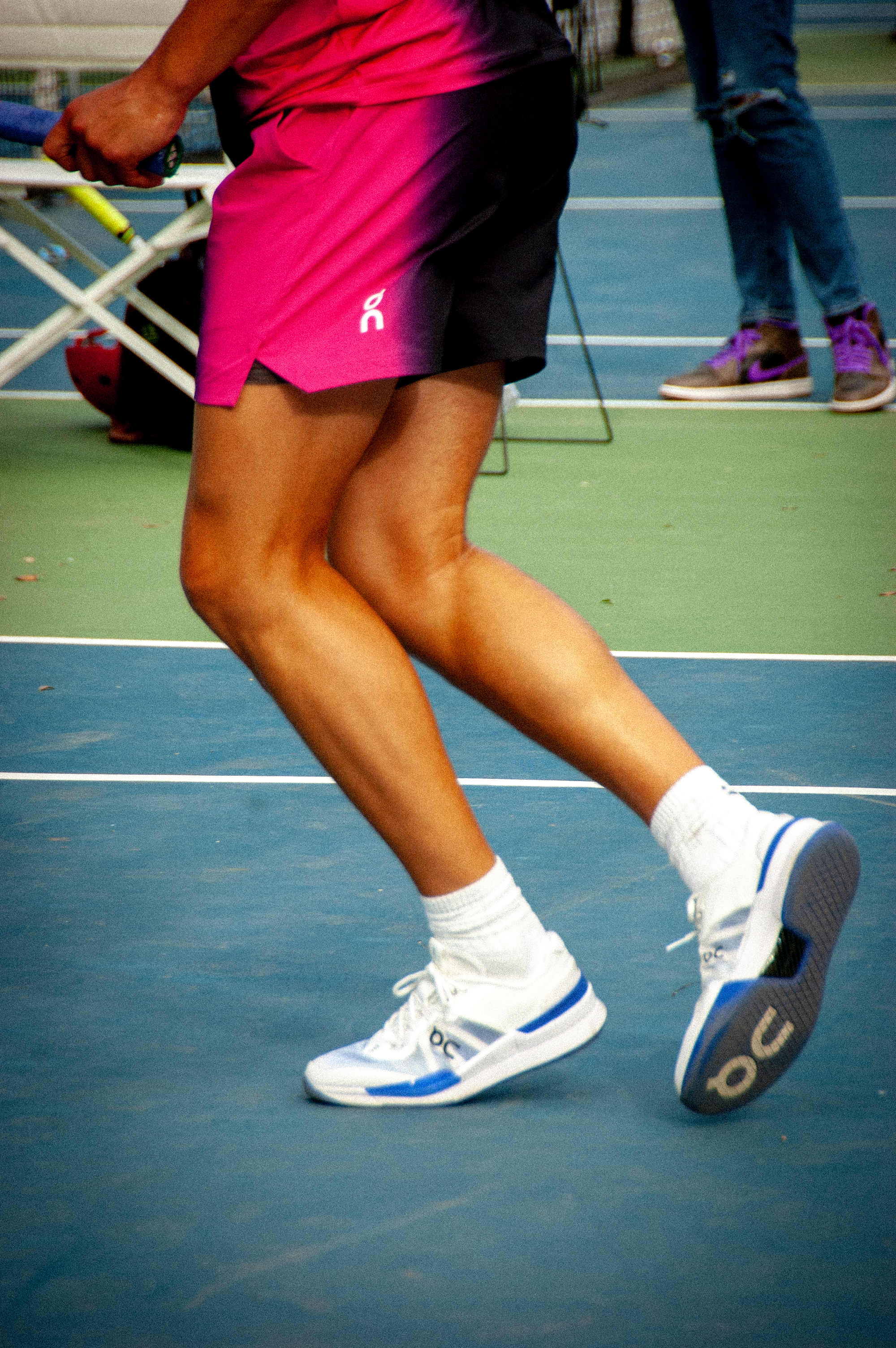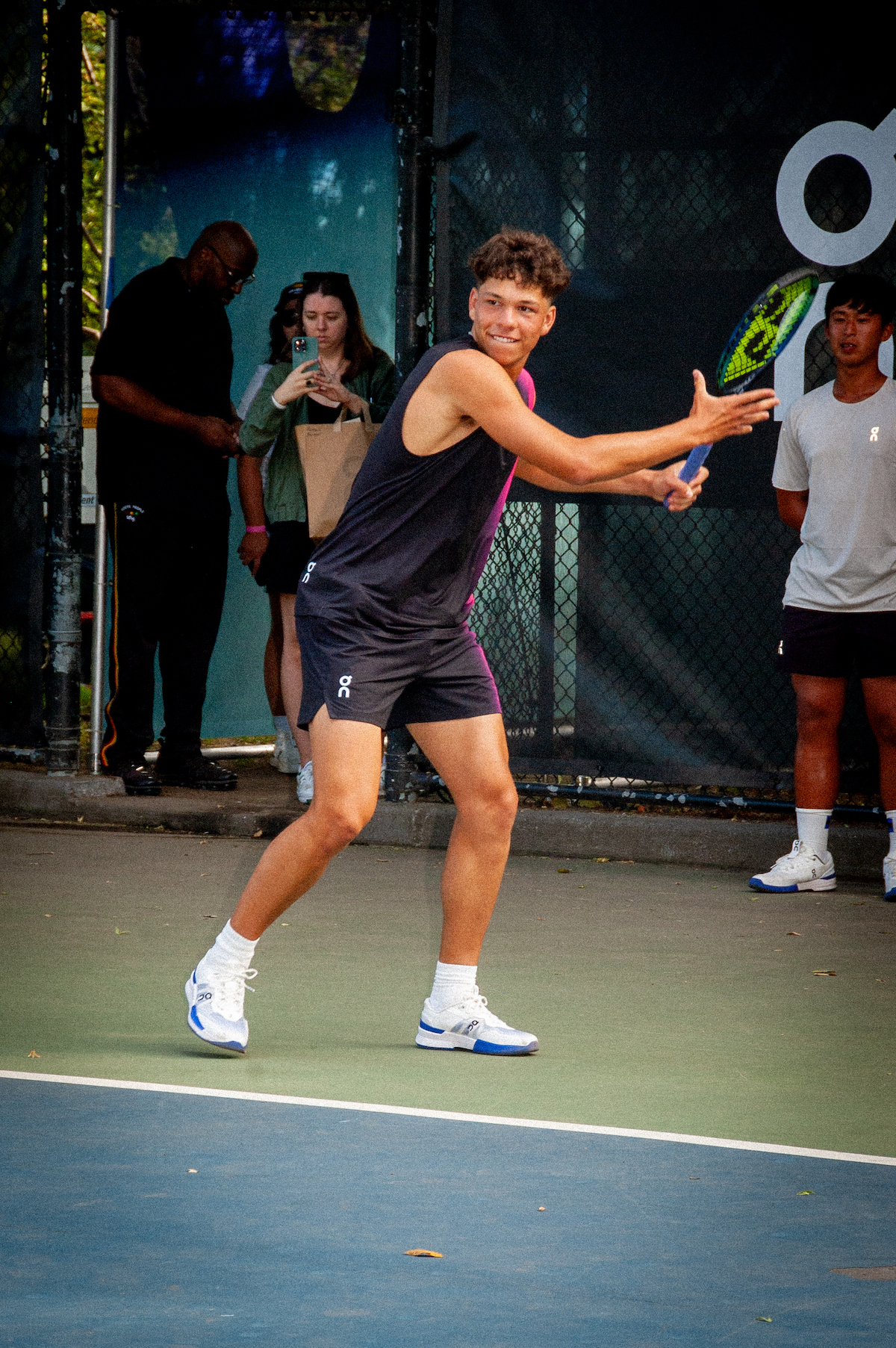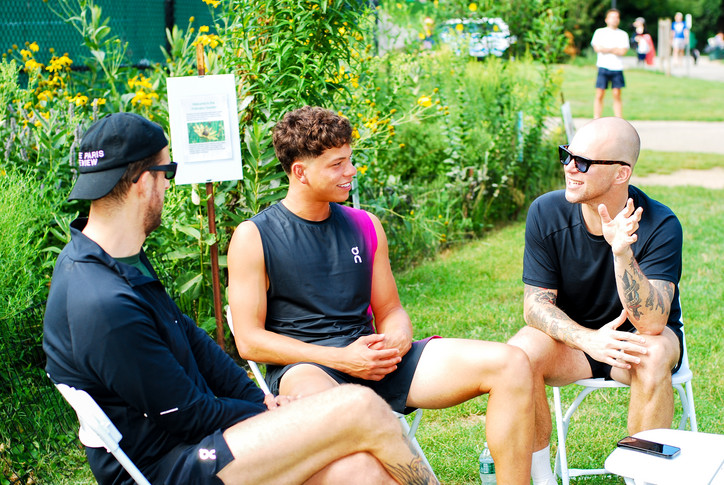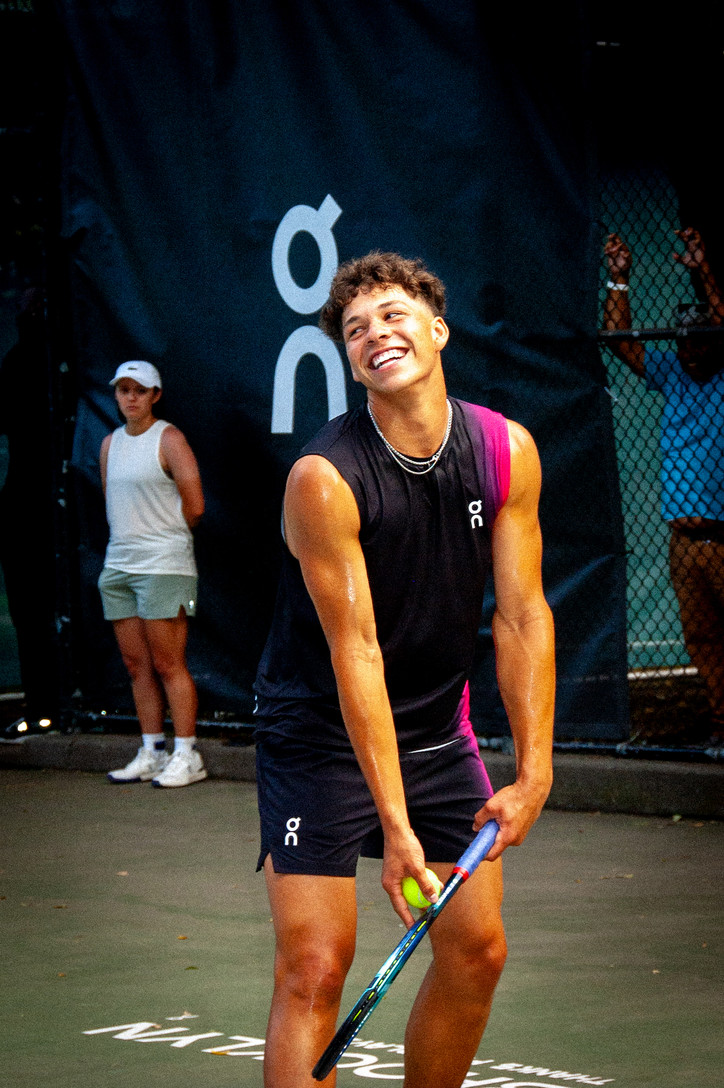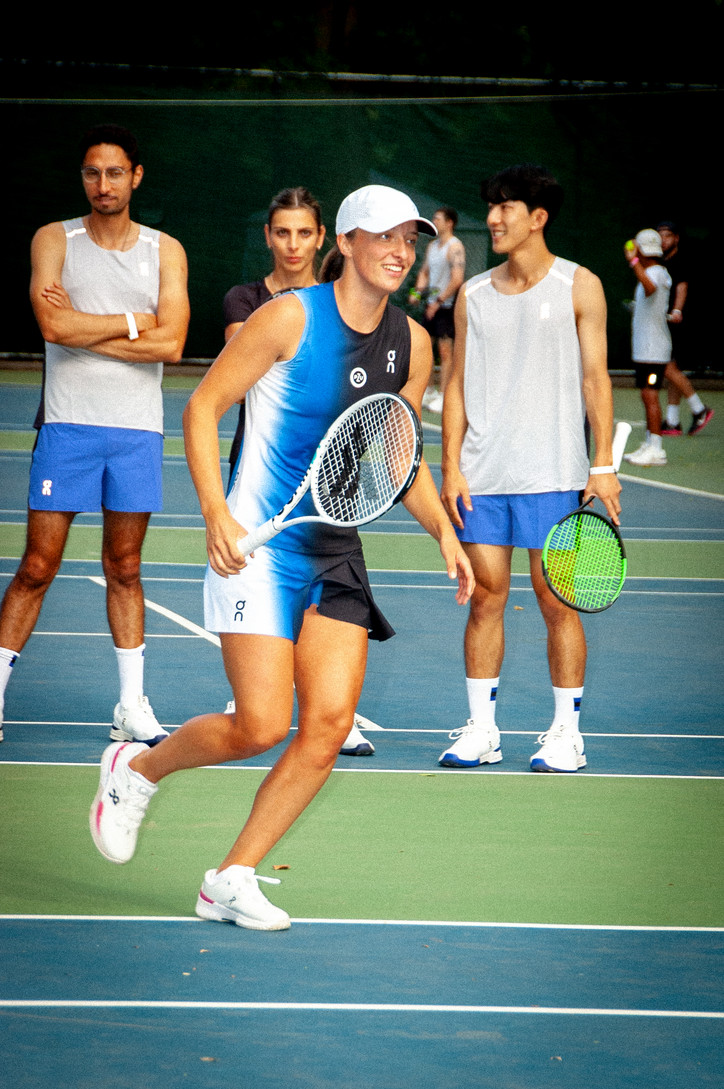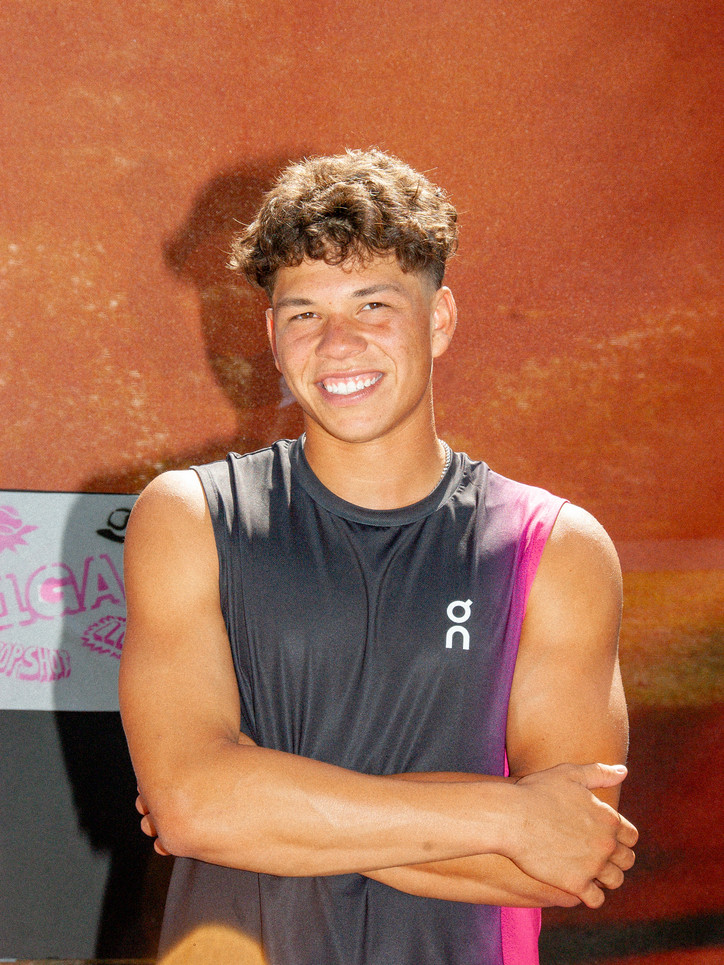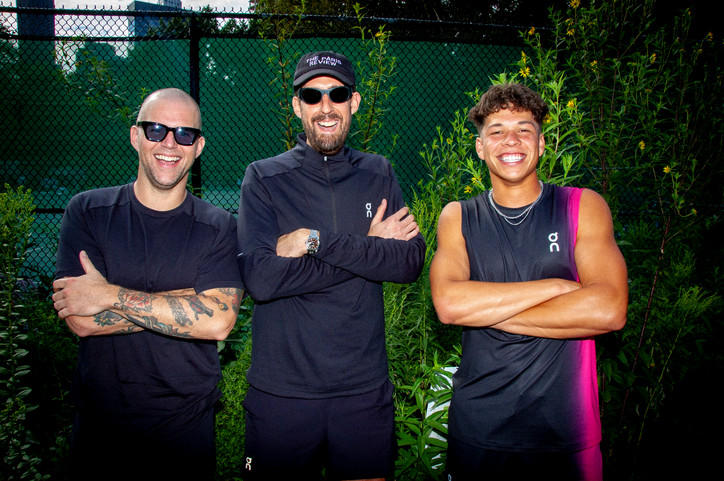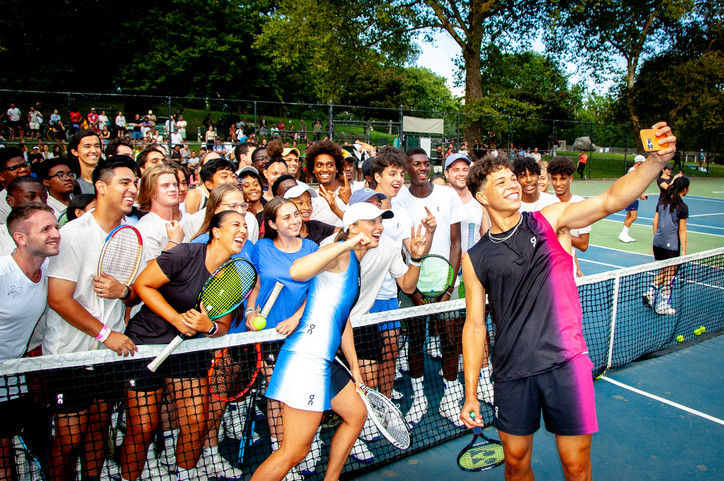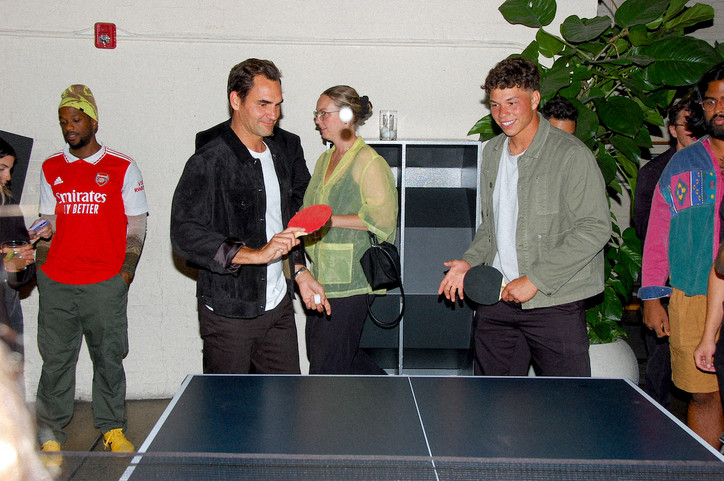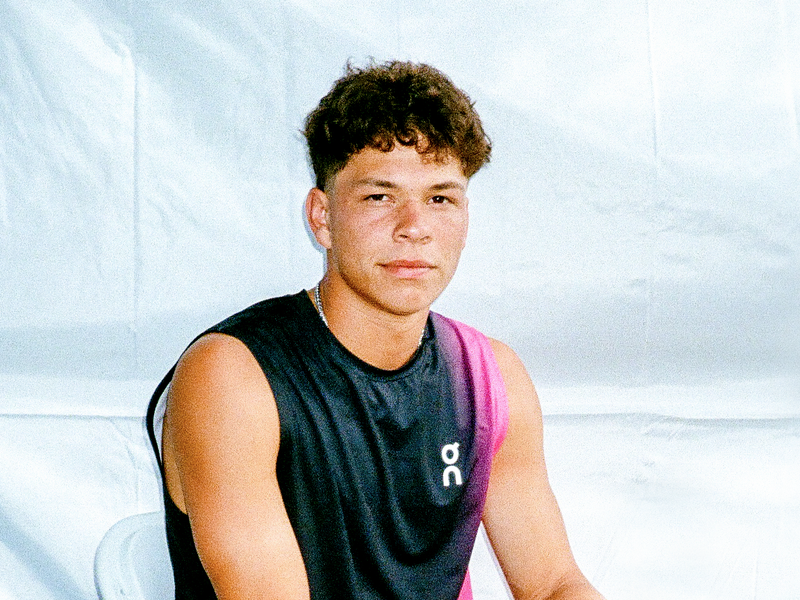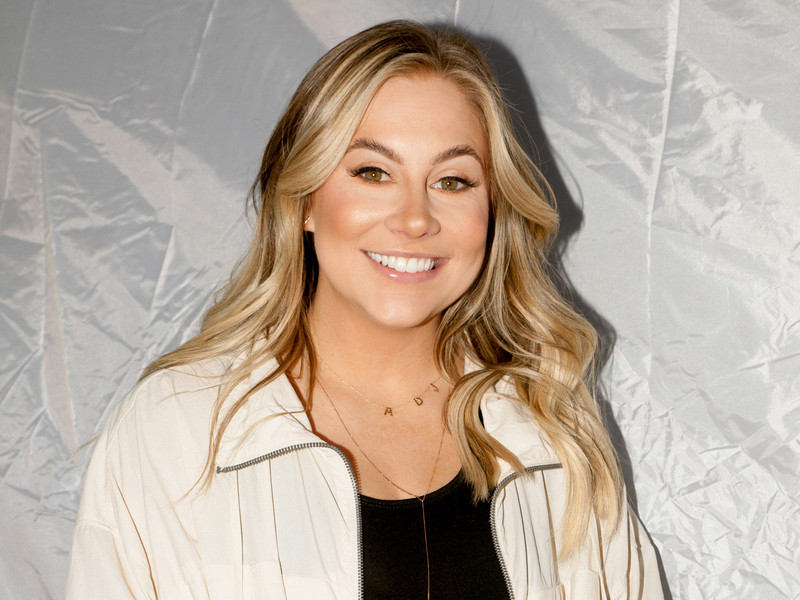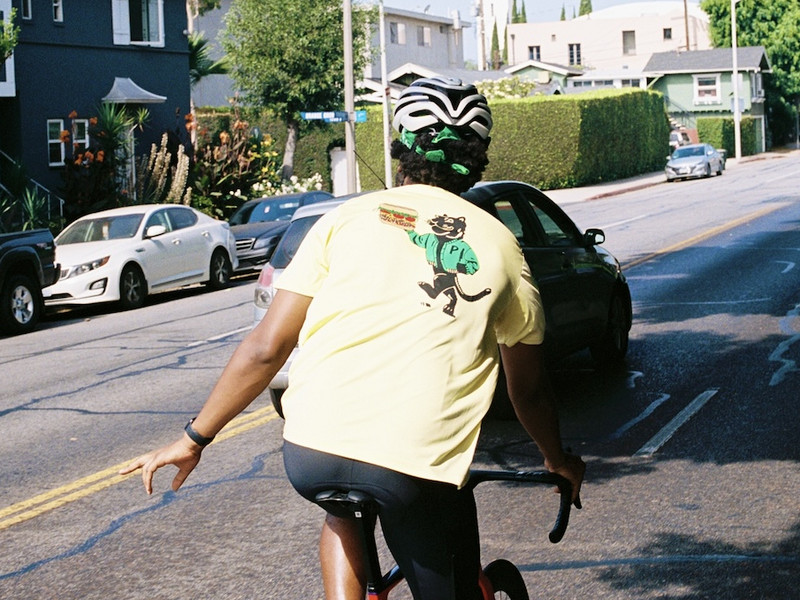Dyke Soccer
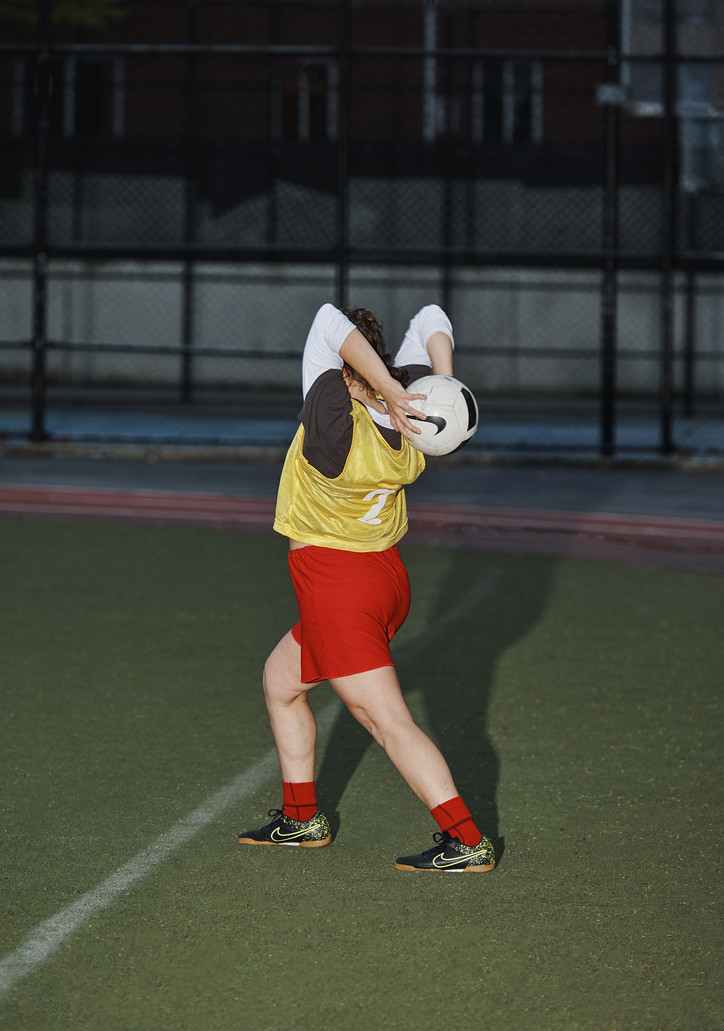
office sat down with both Alex Schmidt and Yael Malka, devoted Dyke Soccer player, to discuss the overlap of sports, art, and queerness.
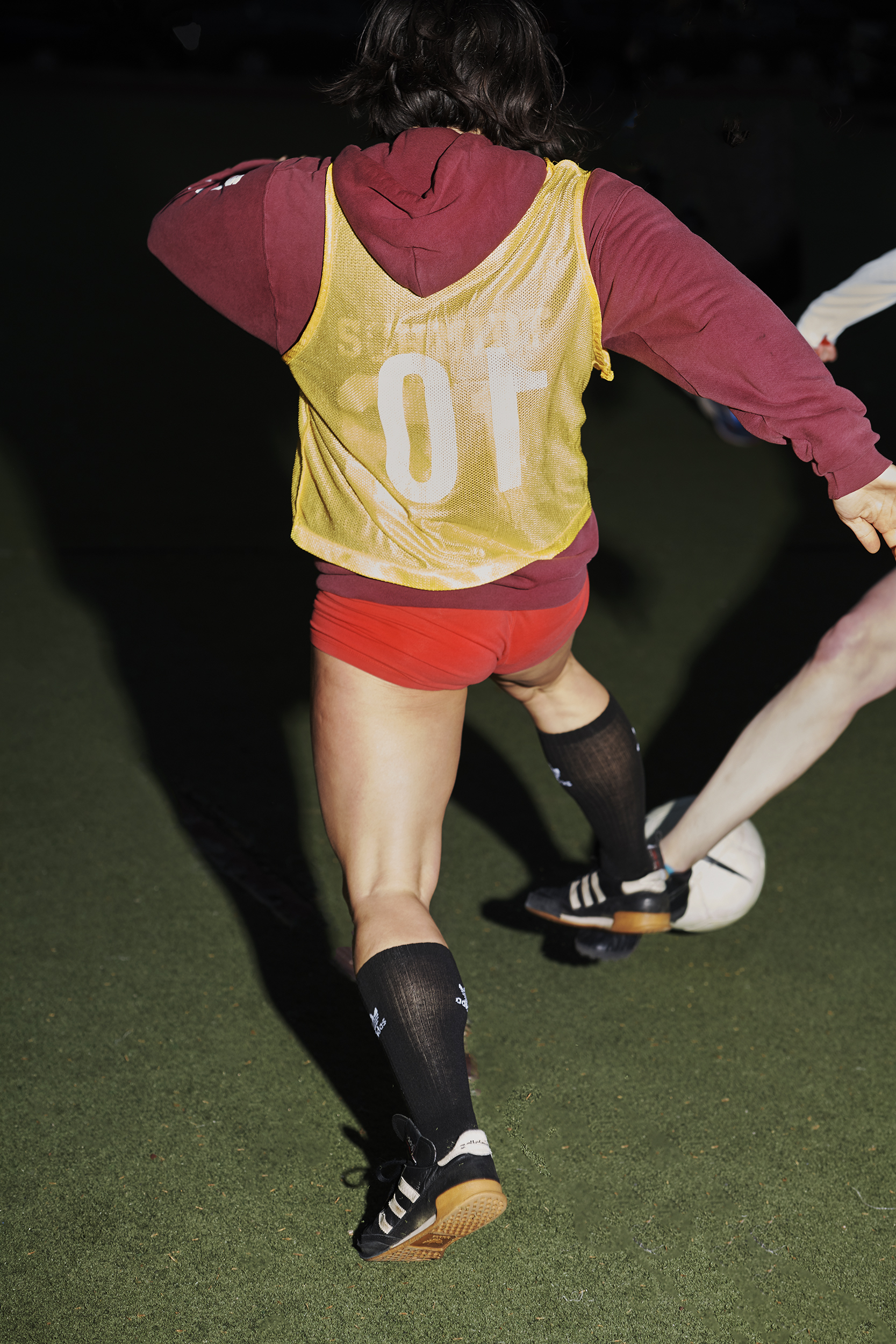
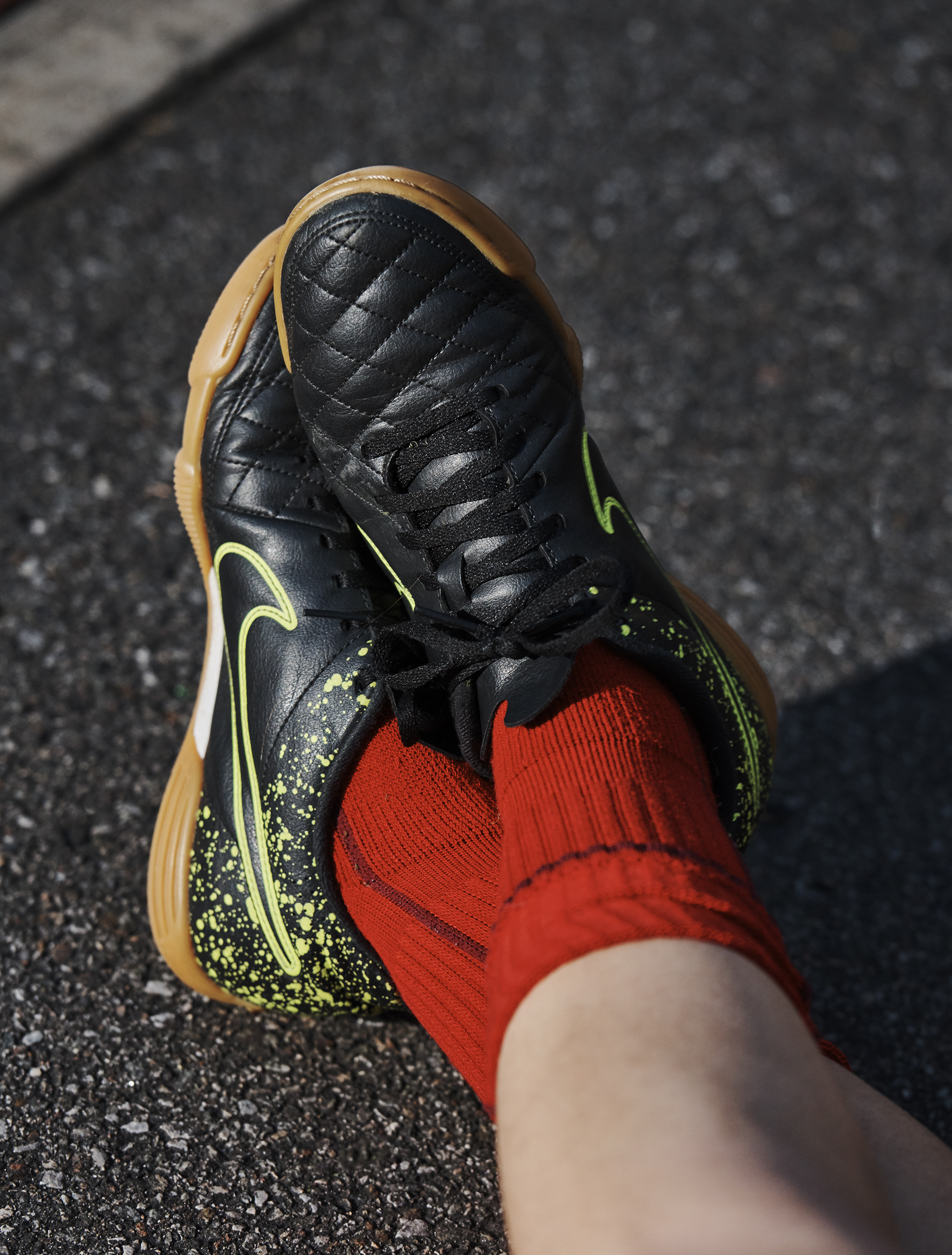
What were the main reasons of starting Dyke Soccer?
Alex Schmidt: I had played soccer my whole life, but had fallen off from it because as I was coming more into my own queerness, I wasn’t comfortable playing in straight-dominated leagues. I think I had always been uncomfortable with it before, but didn’t fully understand why. I played in co-ed leagues when I first moved to New York, and after a few years of that I knew it wasn’t my scene. Having played with girls in high school, I was like, ‘oh man, this is the first time I don’t feel like the weirdest one on the team, like the person on the outside of these blonde suburban girls.’ And then when it started to evolve, it became a lot more about providing free physical and mental health support because there are no queer gyms in New York.
How were you hoping playing for Dyke Soccer would be different than playing for other leagues in the city?
Alex Schmidt: In a lot of other leagues, people aren’t passing the ball and people have no interest in building a team language, which is what you need to get really good. I think Dyke Soccer culture is about supporting each other and improving as a team. We support each other in ways that’s more than just playing on the field, and that’s when I feel we’re actually getting better at soccer.
What was the reception when you started it?
Alex Schmidt: In the beginning, I was really focused on recruitment. I’d go to parties and it would just come up in conversation. It’s funny how many queer people we are already friends with wanted to play. I started building up an email and google group and now it’s maybe 250 people in New York, 100 in LA, and reaching a much wider net than just my social circle. It’s definitely the land of cancel culture so making anything political feels scary.
Yael Malka: It’s really special to be in a space where you wish what they did could be part of your everyday life outside this community. Like, just being aware of people’s pronouns - that that is part of an introduction is really important. It’s a learned language Dyke Soccer has helped me enforce. When I go on shoots, I ask people what their pronouns are and everyone is so happy that that is something that is important to me. Dyke Soccer was immediately inclusive and not intimidating, and I think a lot of that stems from being a queer inclusive team. It’s a space that people feel comfortable in, especially trans and gender non-conforming folks.
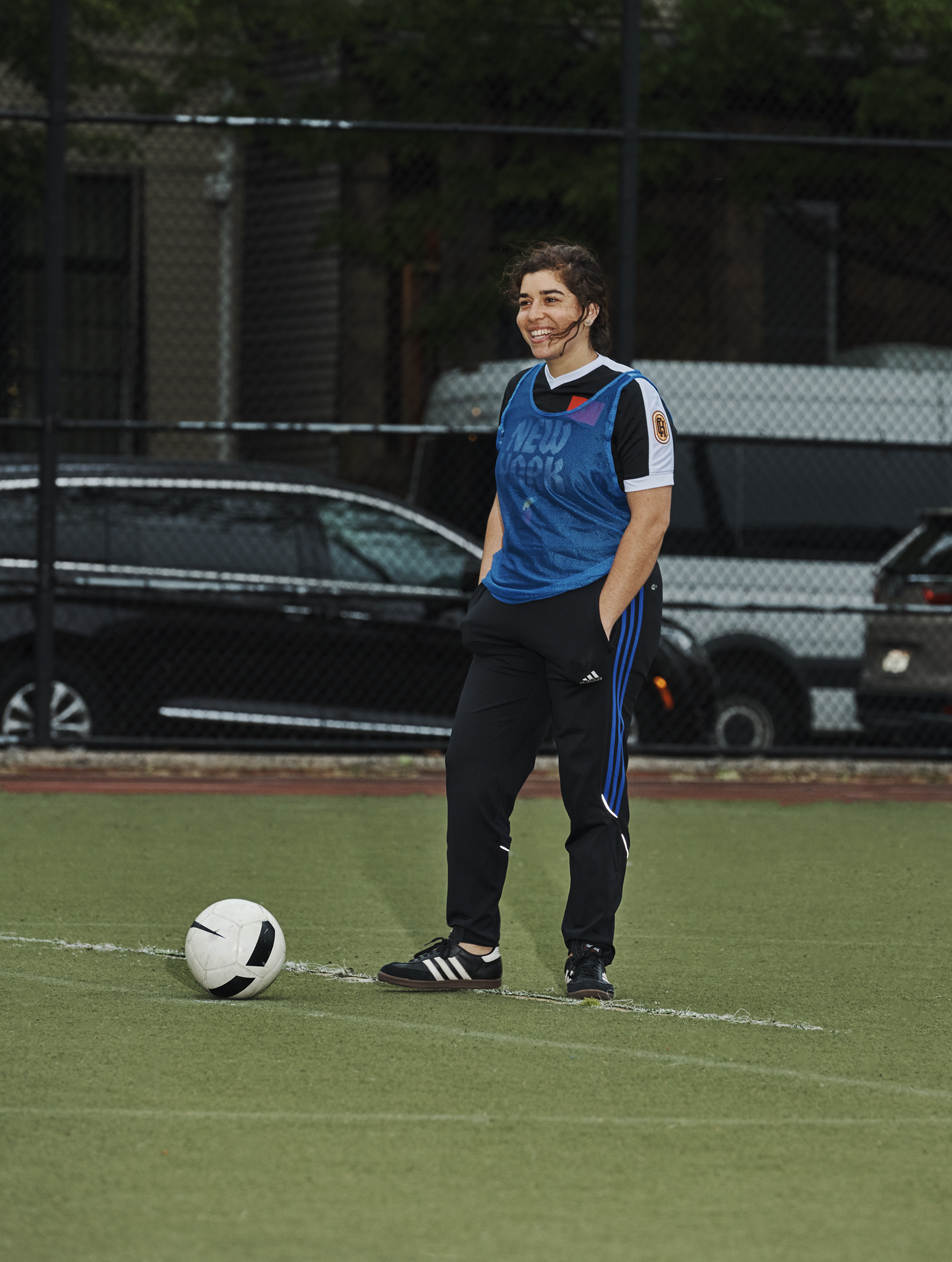
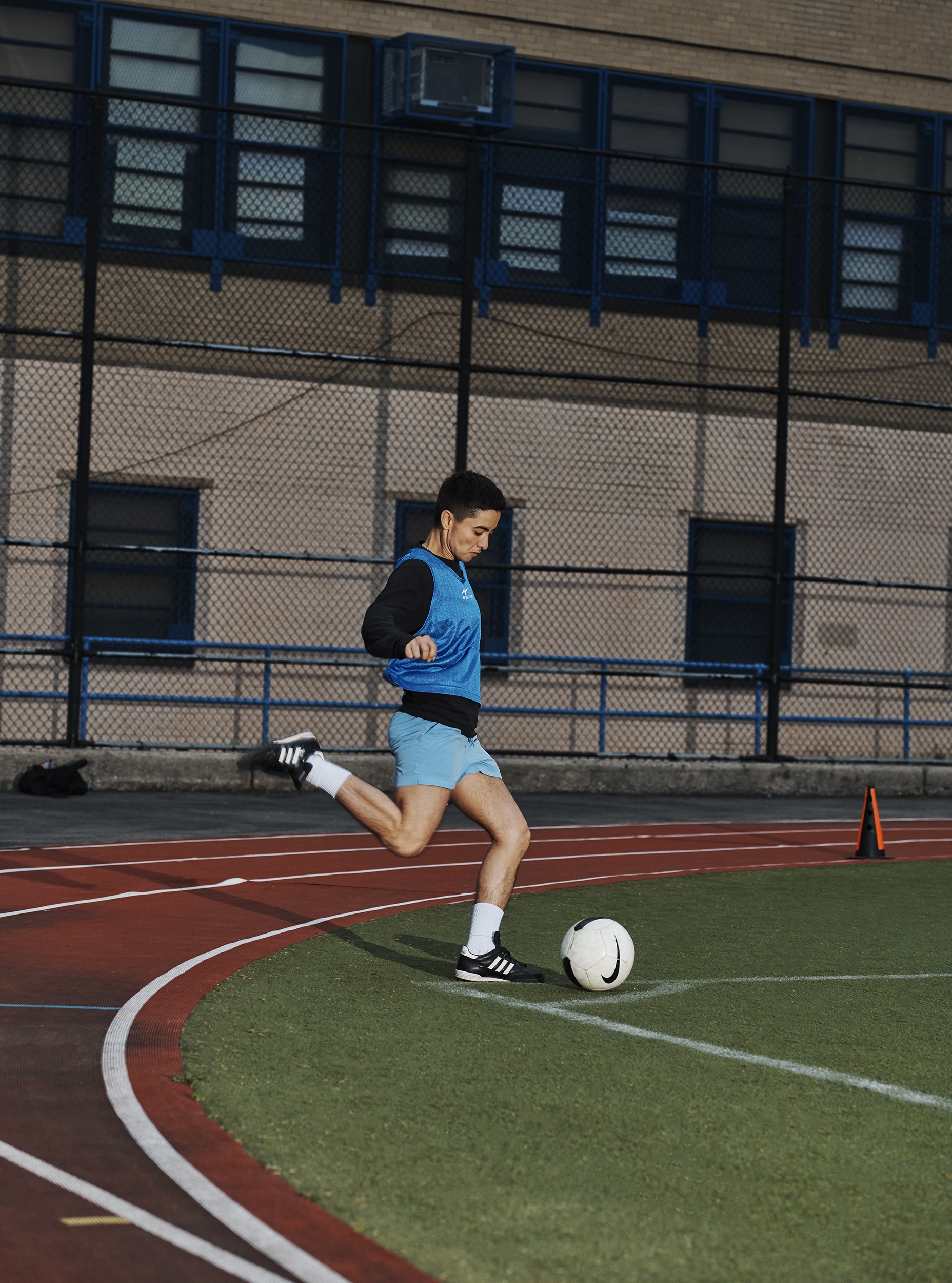
In that vein, was there a purpose behind the name?
Alex Schmidt: There’s a soccer tournament in San Francisco called Festival of the Babes, and they say it’s for lesbians or people who don't mind being mistaken for one. That made sense to me, but I wanted a broader word that felt more inclusive and I think ‘dyke,’ to me at least, feels less like an identity and more of a political umbrella that encapsulates a stance. I don’t even know if I identify as a lesbian, so ‘dyke’ just felt like the word that was closest to home.
I think the way you bridge your art projects to Dyke Soccer has put a lot of people onto the program. Can you tell me a little about the Queer Speed Cruising project?
Alex Schmidt: I met Lily Marotta a few years ago on a webseries called Sad Girls Club, and we started teaching “Queer Art of Improv” classes. They were a reaction to general improv classes being an extremely straight culture. That was the start of us being like, ‘pseudo-business partners.’ We started Queer Speed Cruising last year for a fundraising party that Personals was having. Dykes are thirsty for connection, but no matter how many followers or likes you get, you have to meet up in person eventually. So we thought, maybe meeting a bunch of people in person at once is the move. It’s partially us doing bits and running speed cruising, and over time, we’ve figured out how to get refs who are facilitating the process of signing up. Everybody is usually staffed from Dyke Soccer which is a way to keep projects connected, and to also keep money in the family because we pay everybody.
I was going to mention, I think it’s a big deal Dyke Soccer is free for everyone…
Alex Schmidt: Somebody today at the game was like, “that’s why I come. I wanted to play soccer but every league was 200 dollars to join.” We did a GoFundMe and raised plenty of money to fund the program. It’s a way to be more inclusive for people. They should know to come whether or not they have the money to contribute.
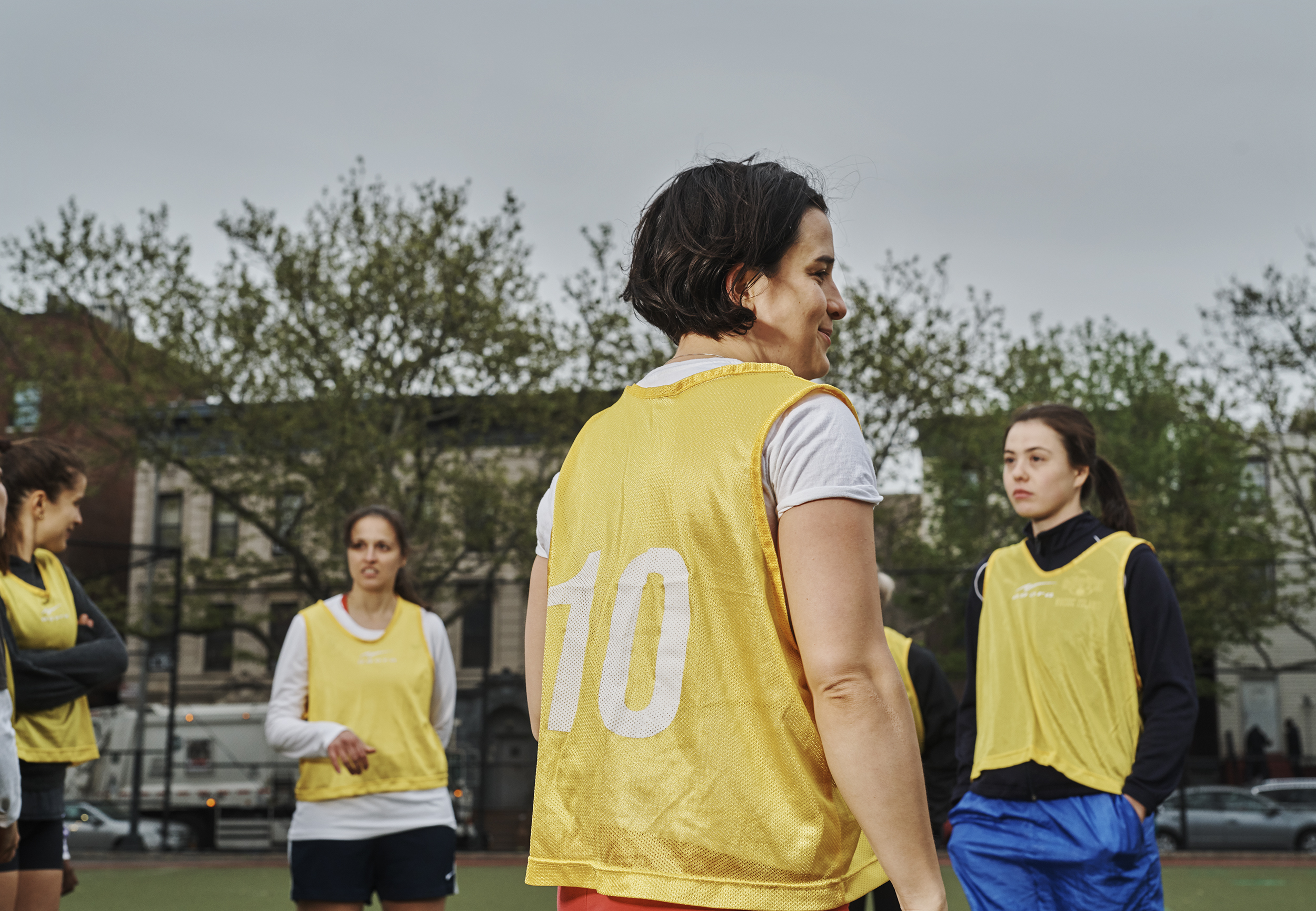
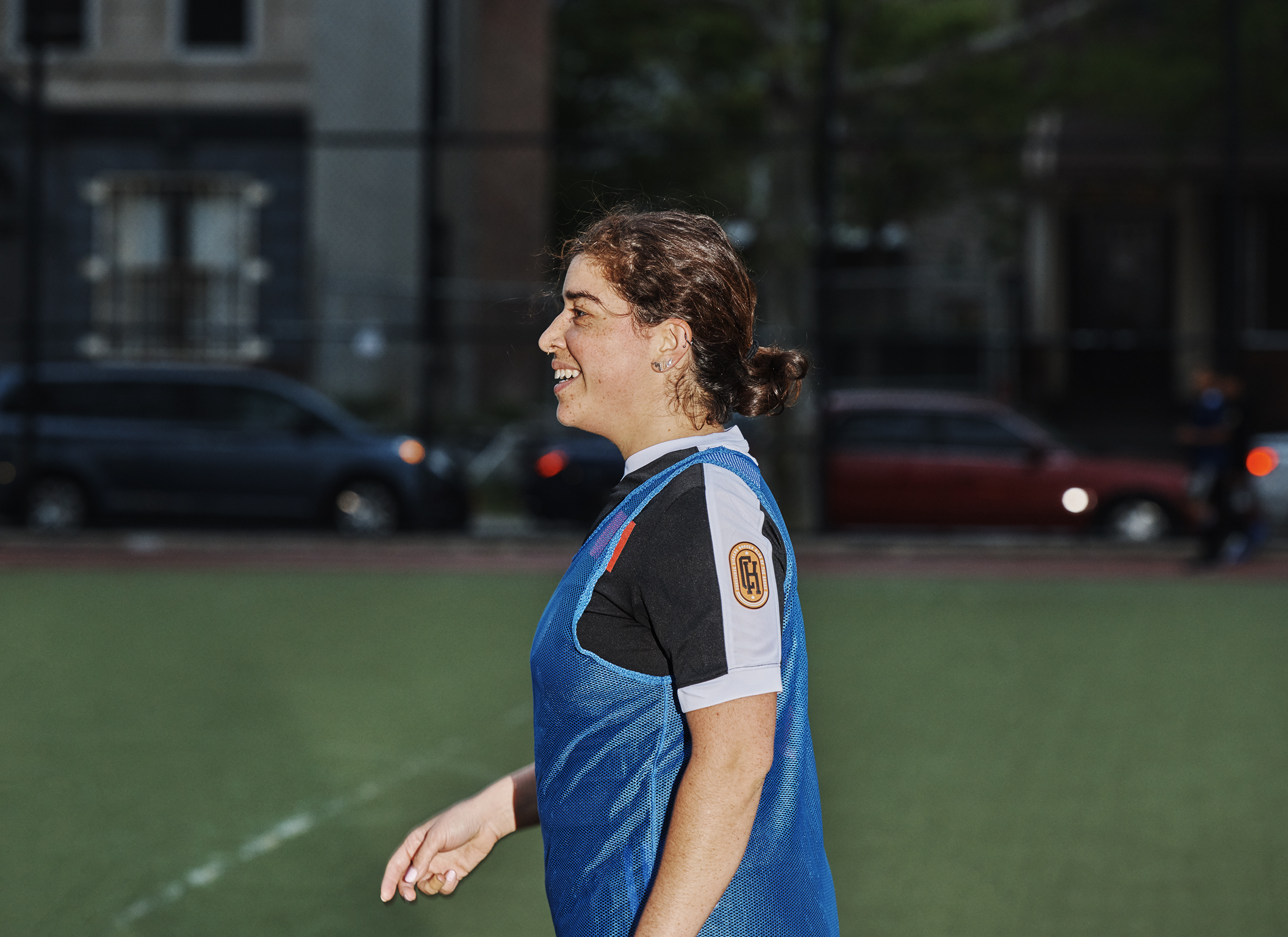
And Yael, you’ve worked as a ref for Dyke Soccer?
Yael Malka: I’ve done it twice now and I think the event speaks to Alex’s ability to cultivate and create these communities and languages. As a ref, we understand it’s really scary for people to come - a lot of people come on their own - it’s nerve wracking! I get asked a lot of questions and I talk them through those nerves. You see crossover from Dyke Soccer but there’s also around 200 people that come to speed cruising and you get introduced to. My community has gotten so much larger and that feels really special.
What was your soccer background?
Alex Schmidt: I started playing when I was four, my dad is famously obsessed with soccer. Around the time of 6th or 7th grade, I started playing year round. I played a little bit in college, but I went to a liberal arts school and it’s not the same. I had a really tight knit team in high school, and we were really good so it was so much fun, but that was the time I was friends with the straightest girls and partying and drinking screwdrivers every weekend. Moving here, I tried those co-ed teams, and I still get texts saying “we need a woman to fill our quota on our team.” That's just the most demoralizing thing.
Yael Malka: I played when I was younger, but hadn’t played in a really long time before Dyke Soccer. I always loved watching it, but also felt like the co-ed teams I was invited to play in wasn’t my environment. I feel like I was waiting for something like this, where I felt I wouldn't feel uncomfortable or judged for needing to get back into the rhythm of playing again.
It’s so energizing to see Dyke Soccer bridge the art and sports world.
Yael Malka: Yeah, I went to an art school as well where there was no real emphasis on sports, which is why it seemed to take a back seat for me. There was a division for me, my art identity and my sports identity. It’s really hard to put taking care of yourself first and that started changing for me when I was twenty-three or so, when I realized you can have both. You don’t need to choose one. I’m starting to see it in more artists now who are taking better care of themselves and seeing the importance of working out.
Alex Schmidt: I’m into group therapy and trained in a specific form of pedagogy that has to do with social constructivism. It feeds off the concept that you say yes to each other’s ideas and you buy into each other’s realities and build new knowledge throughout. You build a culture by deciding every time you step into a room or field, you’re building a new one. That’s what I try to tell the team, for example, if the weather is bad, it’s not my call whether we play. If you want to go to the field, let people know, and it can still be on. I’m not the principal, I’m just a facilitator. Art and Dyke Soccer toggles back and forth and feeds to other parts of our work. Dyke Soccer is in a show that’s hosted by an organization called Slowe Club in London and Yael’s photos will be in that. I always want to hire queer people or people of color and the team is helping me do that by getting to know my teammates on an authentic level and discover their work.
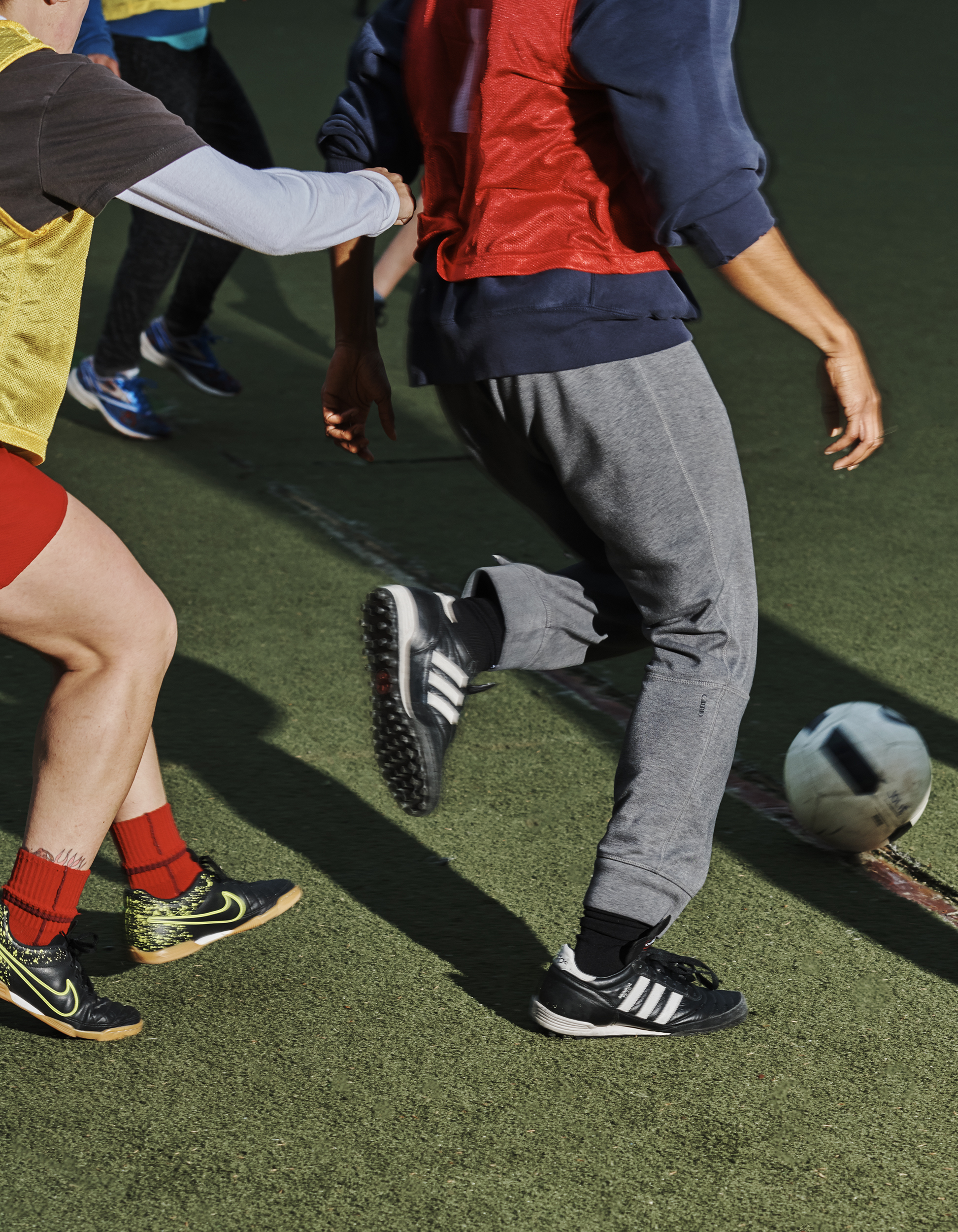
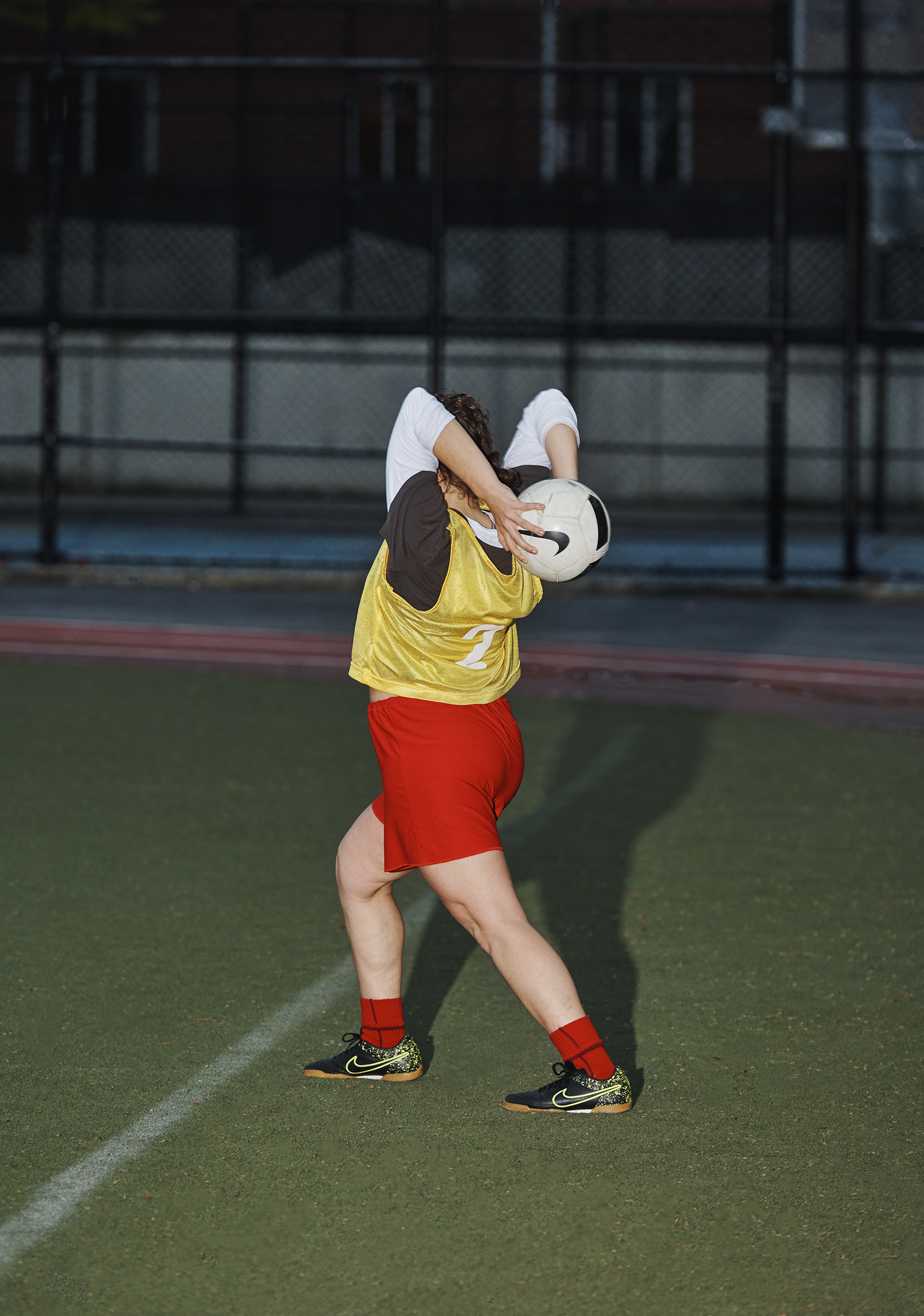
Do you see any similarities in how you approach art to how you approach athletics?
Alex Schmidt: My role in teaching improv or anything, really, is to see myself as a conduit verses a professor. I never want to tell anybody how to make their art or how to be funny. It’s more discovering ‘what’s your reality, what’s your medium, and speak to your intelligence around that.’ I’ve taught investment bankers, preschool teachers, all different kinds of groups, and everyone is funny because everyone has a really specific idiosyncratic reality that they come from. I did found the Dyke Soccer team, and I am a captain, but I don’t see myself as a principal or president.
You both have shown a lot of interest in sculpture work. Do you think sculpture has a different relationship with the audience than other mediums?
Alex Schmidt: Yeah, I want to make a space that’s for sure a showcase of my sculptures and my aesthetic, but is also functioning as a community hub and a place where you might spend lots of time. I think there’s a lot of work now that’s built to be used and for you to sink into. A lot of people ask me what my medium is and I truly can’t think of a medium I don’t like to do…all the mediums, that’s the medium!
There are a lot of different mediums in Group Fail Pony Play that showed at the Leslie-Lohman Museum last year. Can you tell us a little about that project?
Alex Schmidt: Yeah, the name itself is a really distilled poem, I wrote down a lot of different words that felt central to my work - which is all about building as a group instead of moving from a place of individualism. Failure is really central because I feel there’s a lot of empowerment in choosing that; accepting failure as the necessary result in order to take a risk. Pony, I think, relates to queer sexuality but also has a lot of ties to my personal life with ‘horse girl’ and the fact that I have a lot of autism in my family, so there’s a really strong culture of horse therapy I’ve been around. This creates a crossover between sex and therapy. Play derives from the form of pedagogy that is the concept you should always be moving from a place of play. The piece has quilting, rug tufting, ceramics, live programming, and a performance video. The ceramics range from more flat pieces to ones that are more figurative that have tongues and strap ons. The performance piece is called Power Bottom which entails me topless riding a barely trained horse in North Carolina with a long white wig and kink wear. The audio is me being coached by Lily the Horse Tamer, and it feels a lot like her teaching how to train your bottom to a top.
Yael, you are also a photographer. What’s your relationship with sculpture work?
Yael Malka: After I started doing more sculptural work, my mind goes there immediately because a lot of time it makes more sense to have the work be a physical object. A lot of what I use are found objects and I love the idea of taking something already in the world and changing the context of it or using it as a ready made. I’m really interested in ephemerality right now, so I want to keep pushing down that path.
Yeah, we saw a lot of themes of ephemerality in Almost Touching and Performance. Can you tell us a little about Elastic Behavior?
Yael Malka: I had stayed overnight in the Sahara desert and was so fascinated by the ways time worked in the desert and how there were physical imprints in the sand that would get erased immediately. The desert is in a constant state of motion. The piece, sand falling out of an hourglass, was made to be durational and lasted the entirety of the exhibition. With the sand piling on the floor, making its own shape, erasure and accumulation is happening simultaneously. Most of the world's architectural structures, as well as electronics, use sand as a base material, which led me to think about consumption, land, and borders. Borders are arbitrary decisions made about where a state or country starts and stops. The sand falling onto the floor is a reminder of that because it’s land that truly can't be defined or fenced in.
